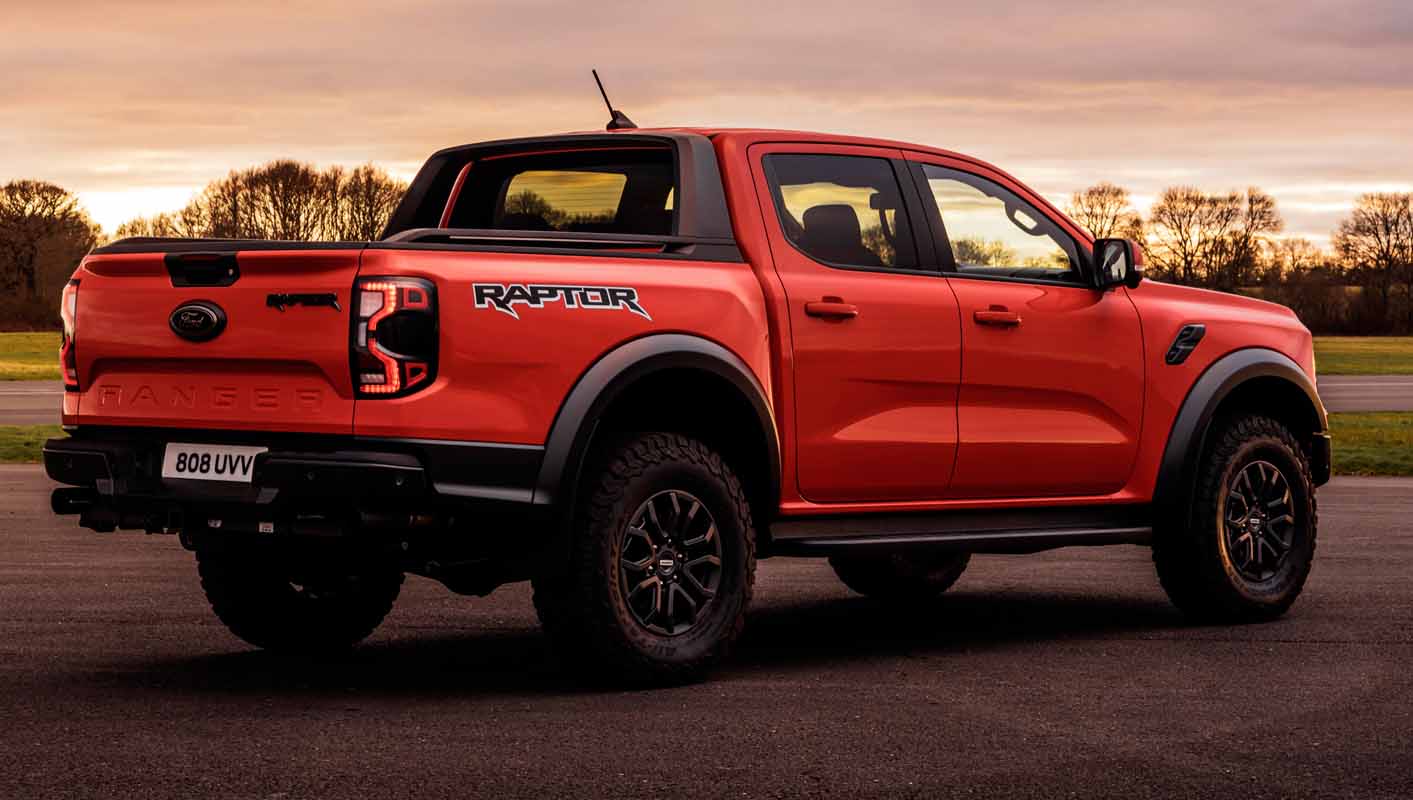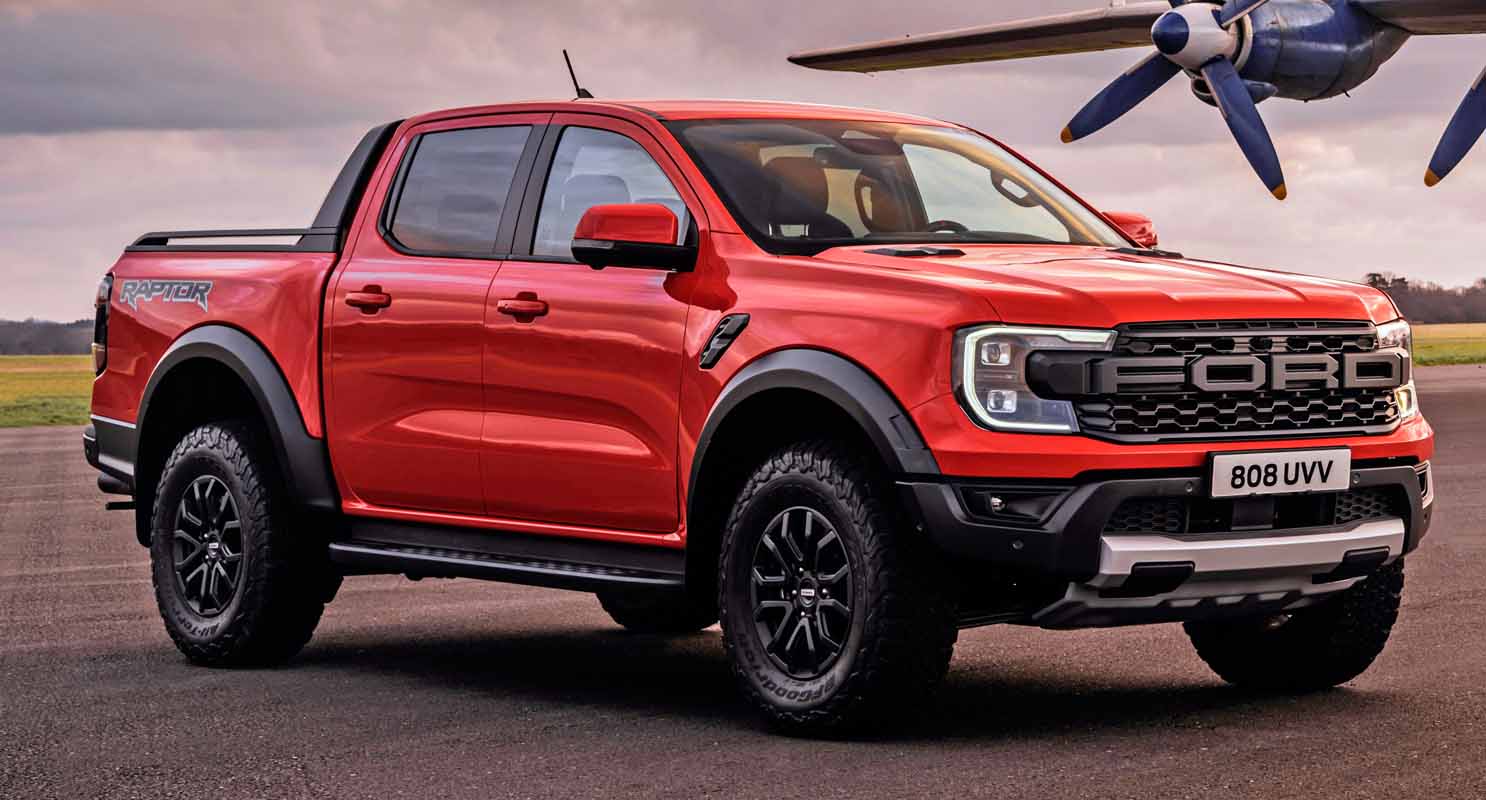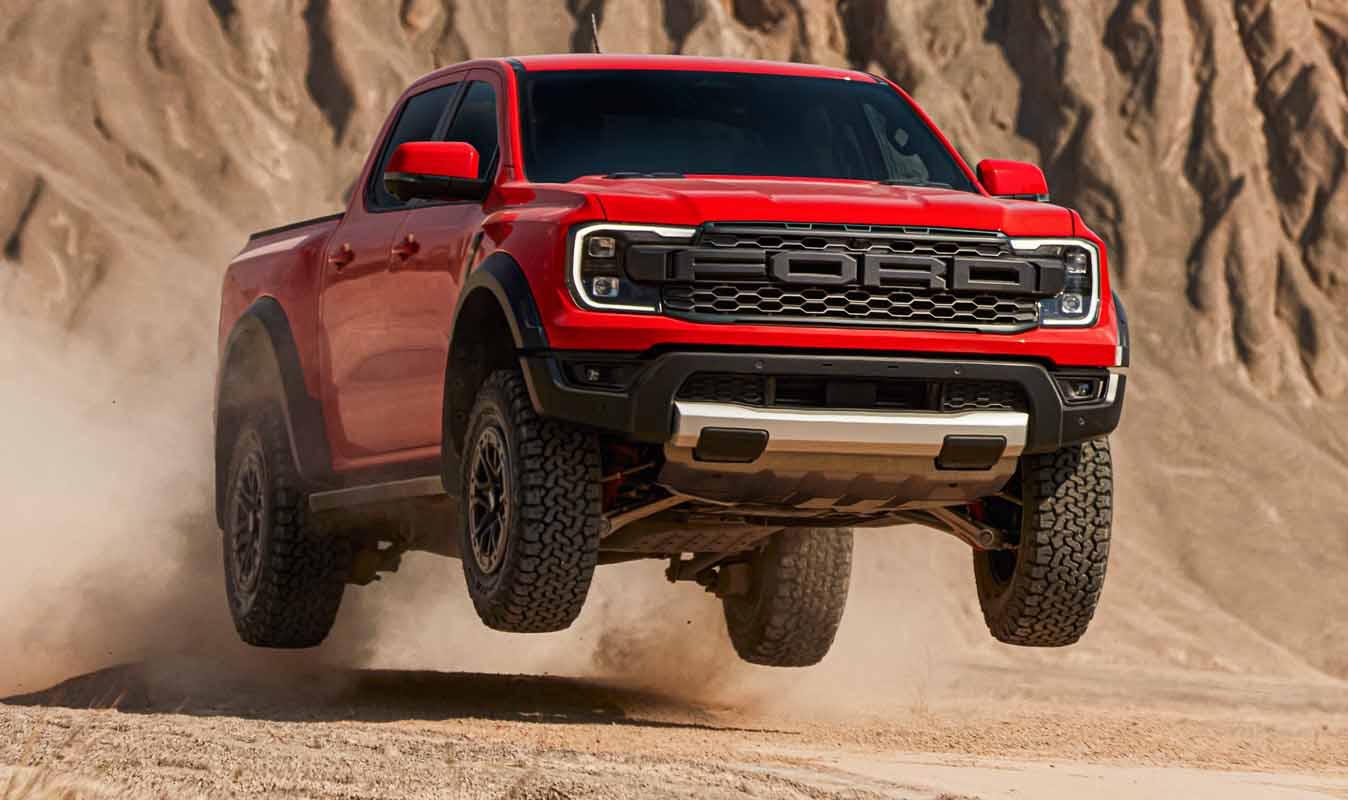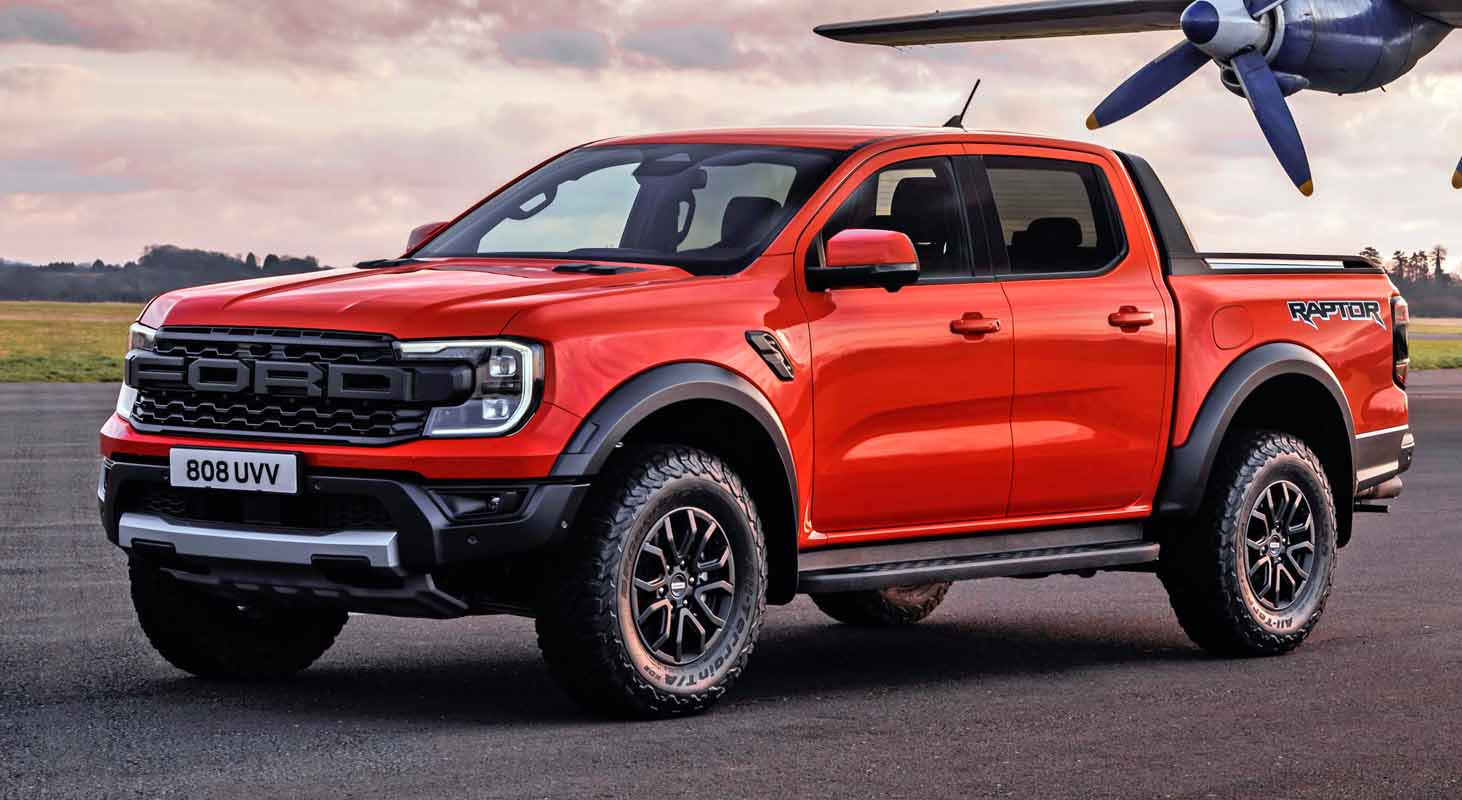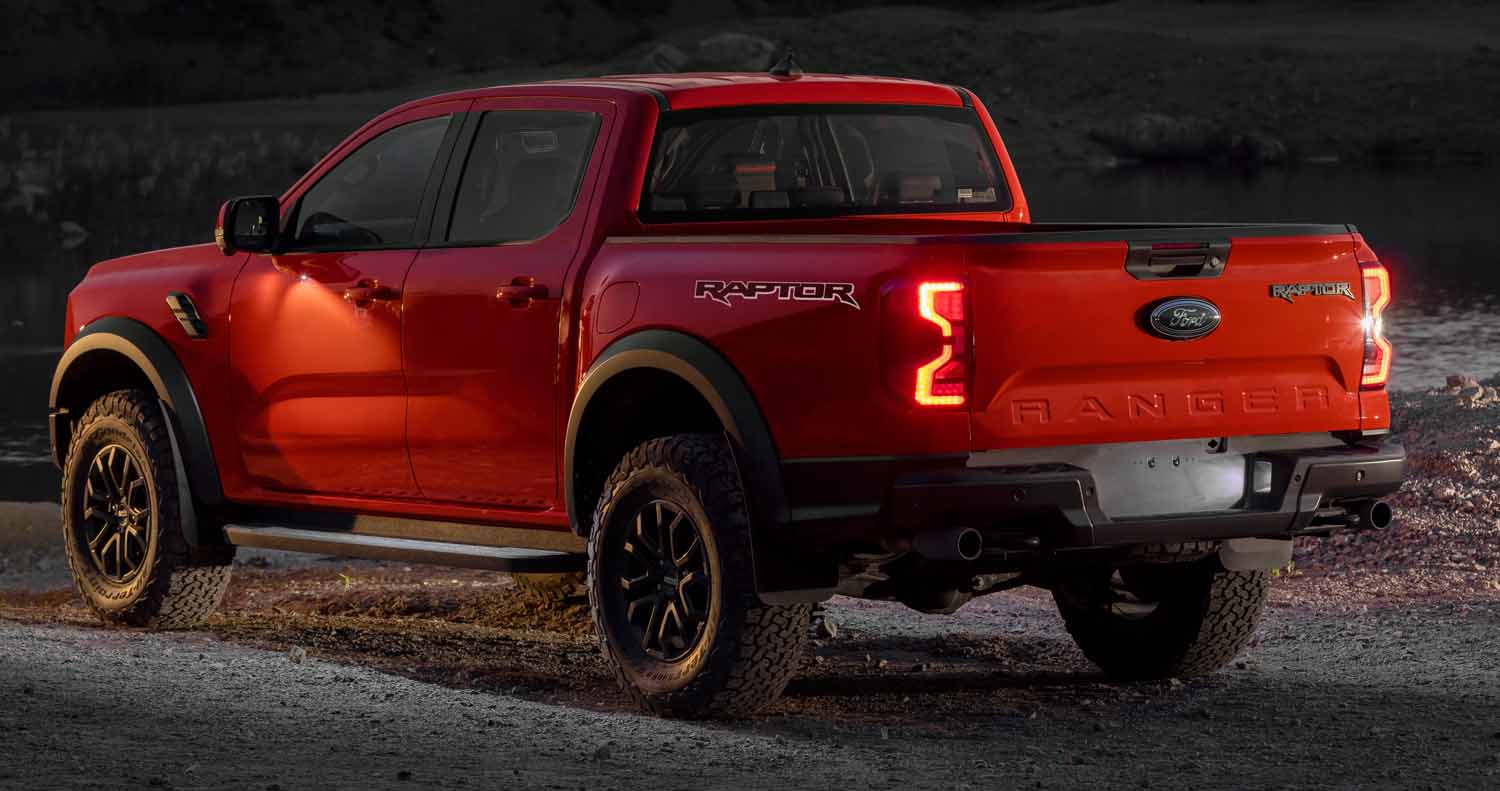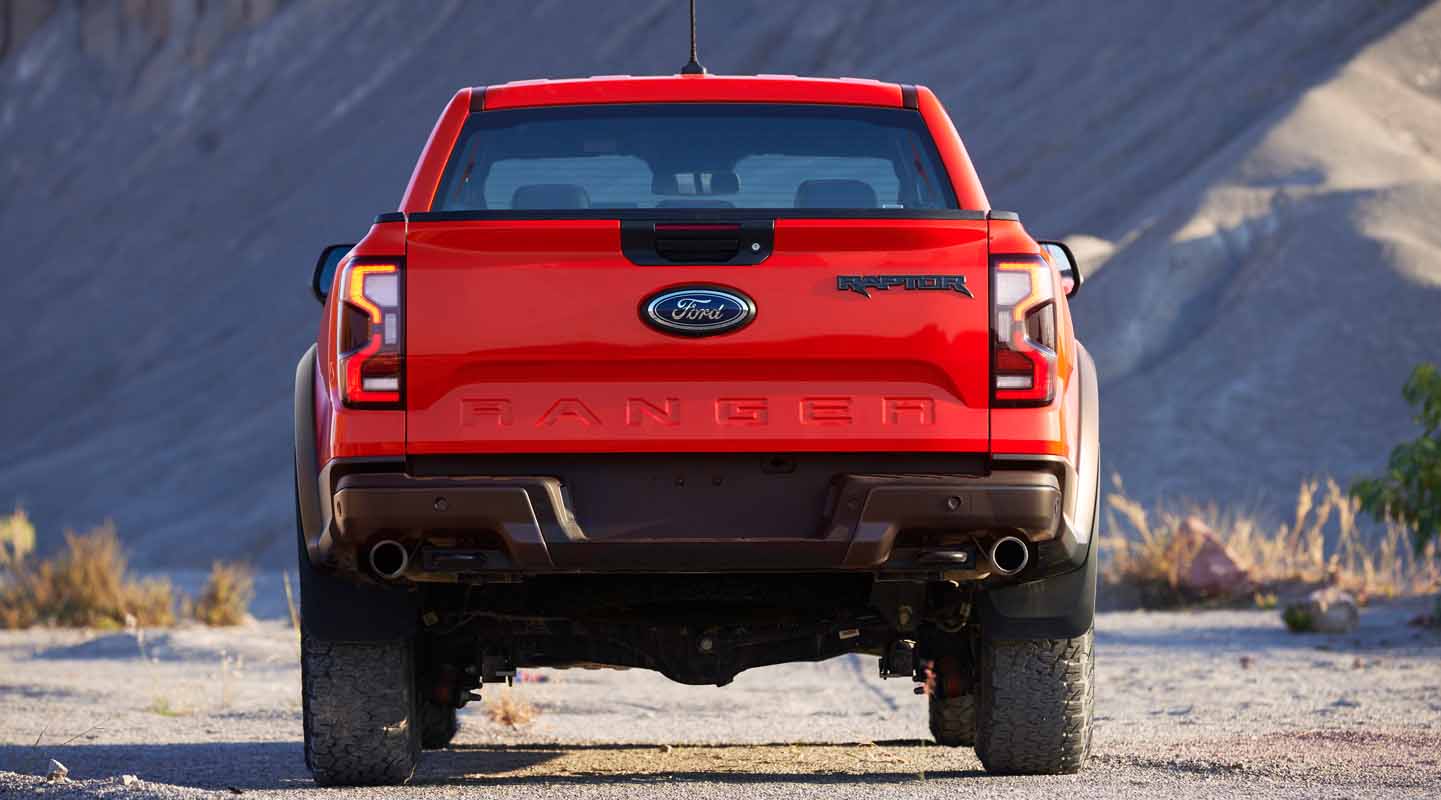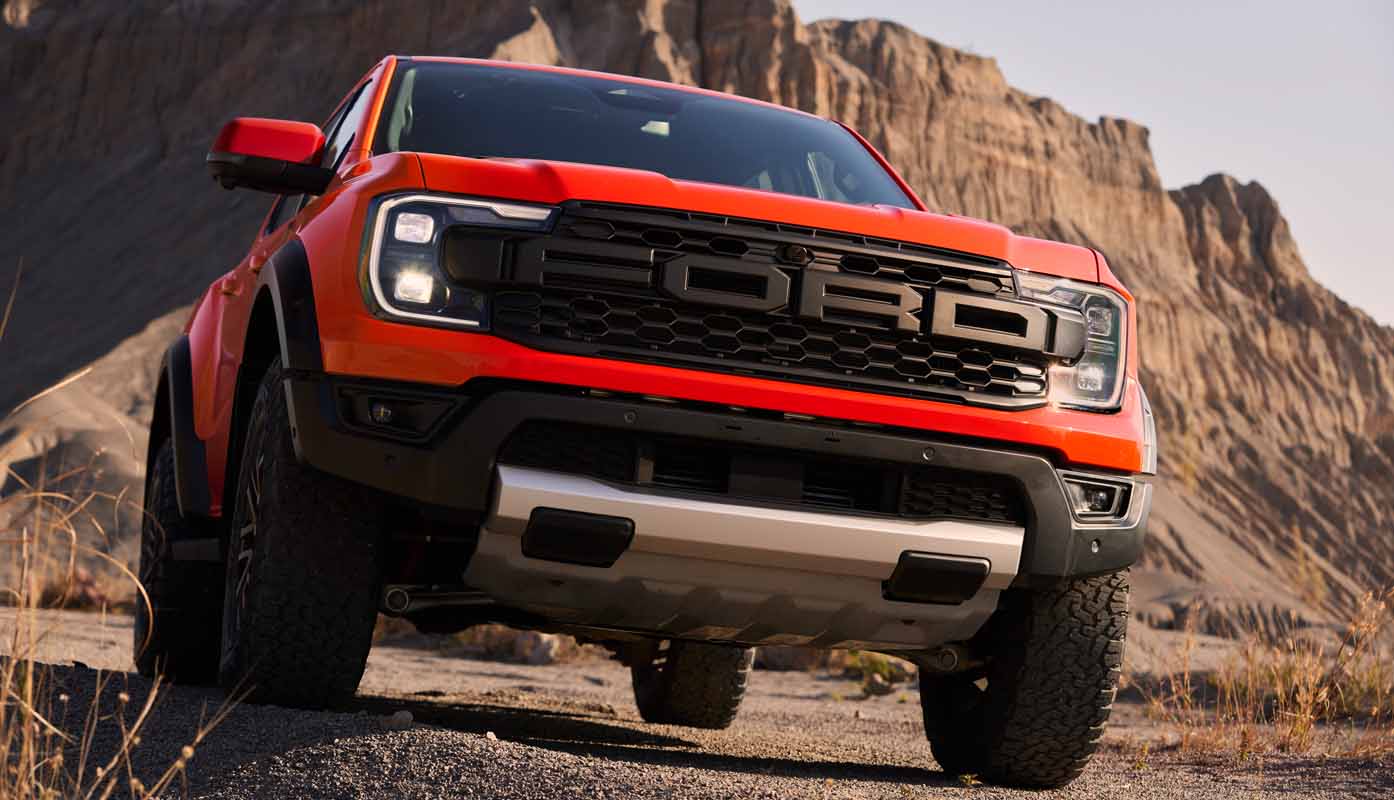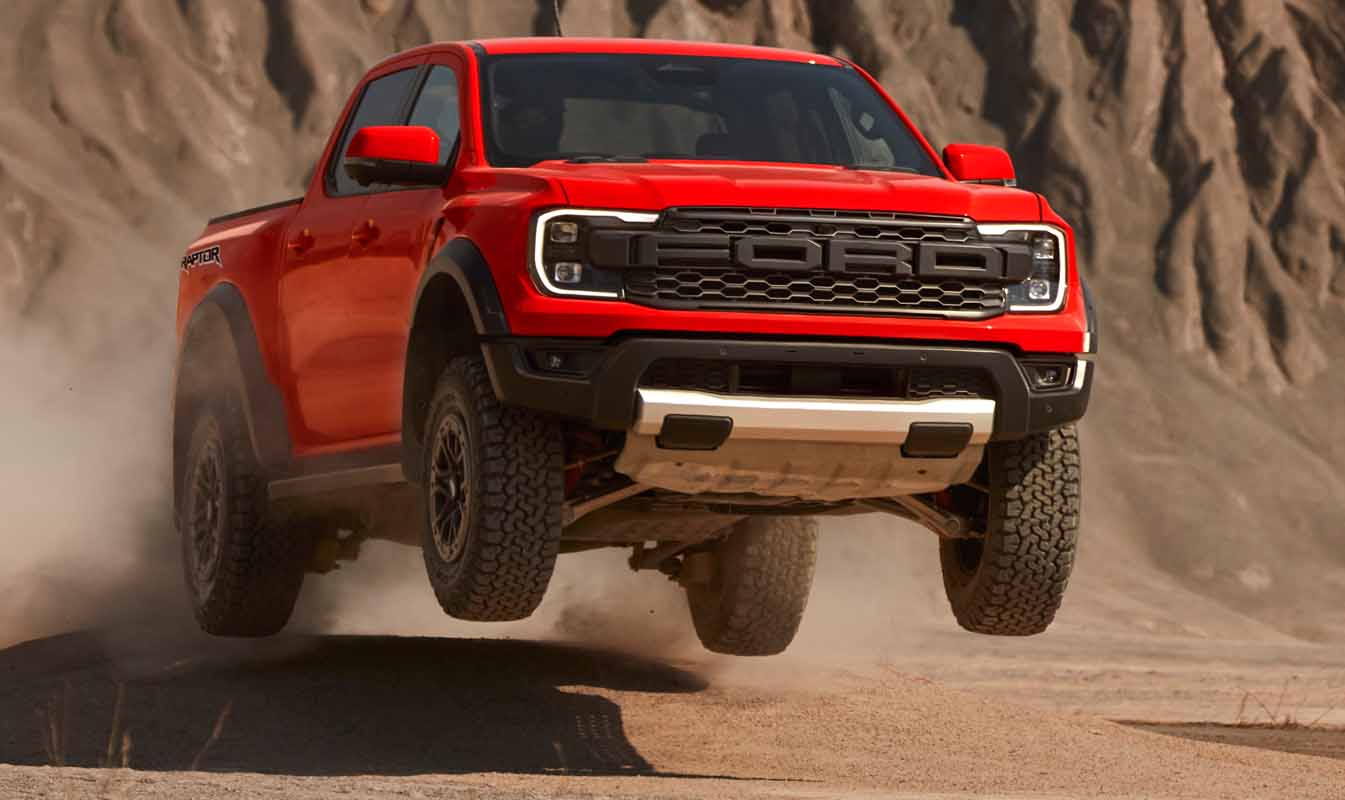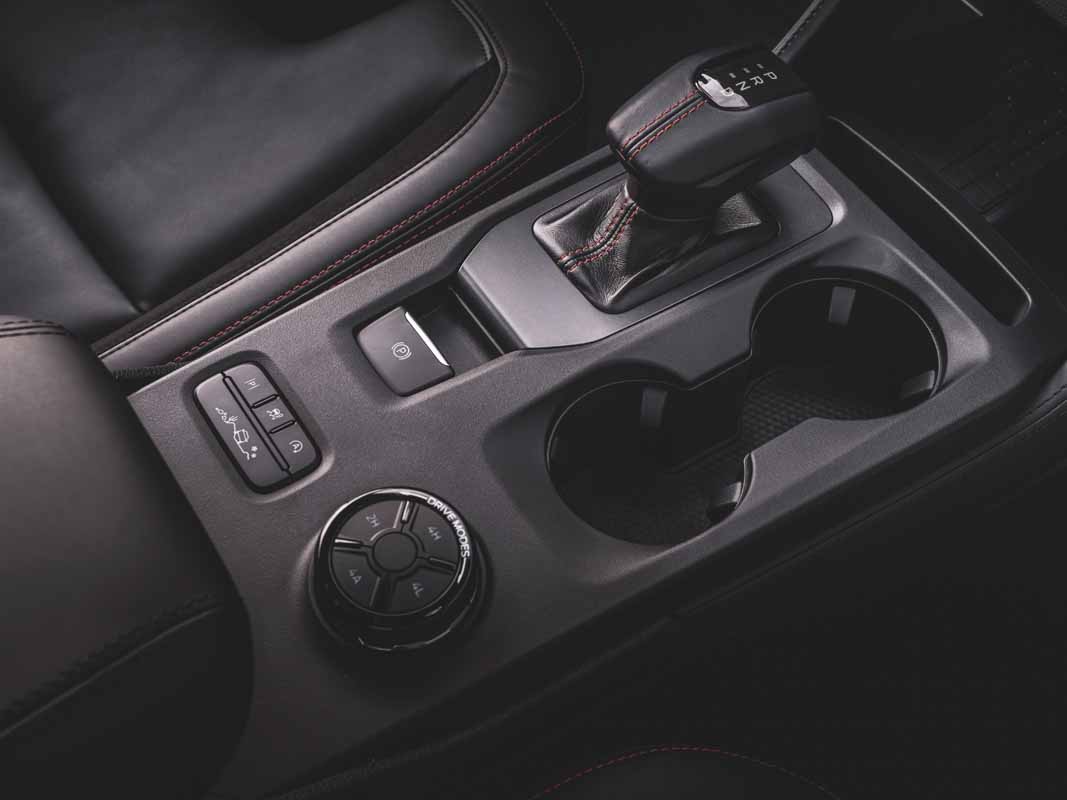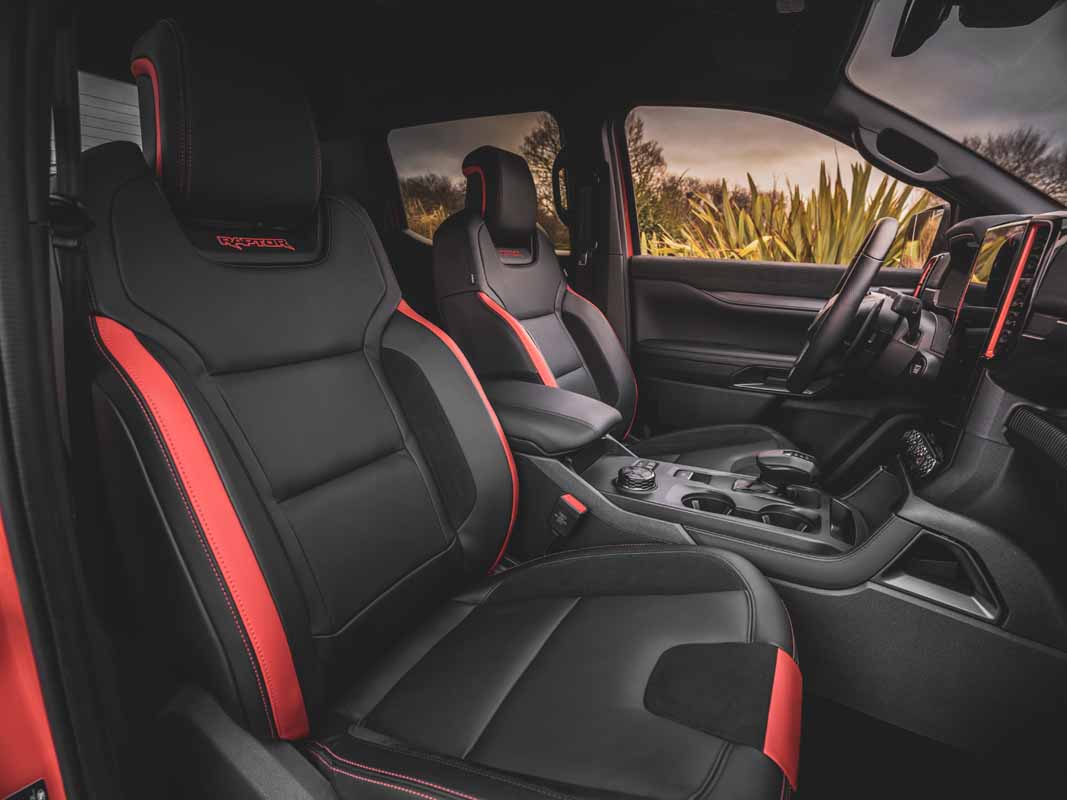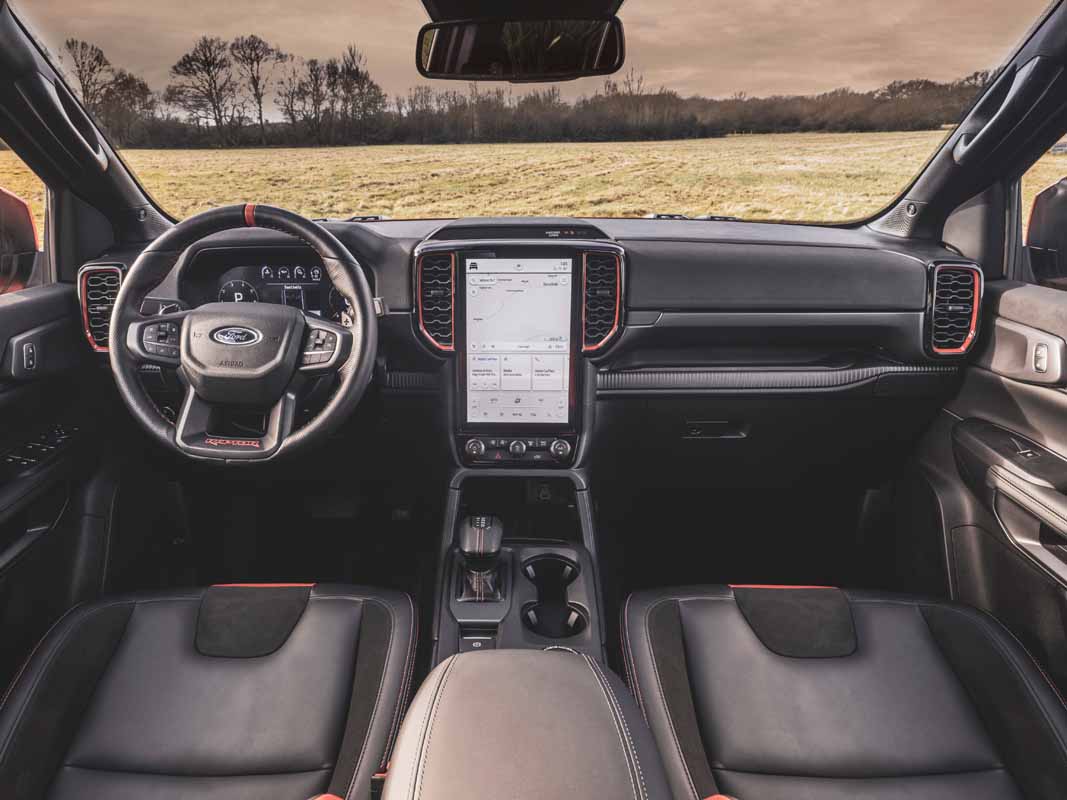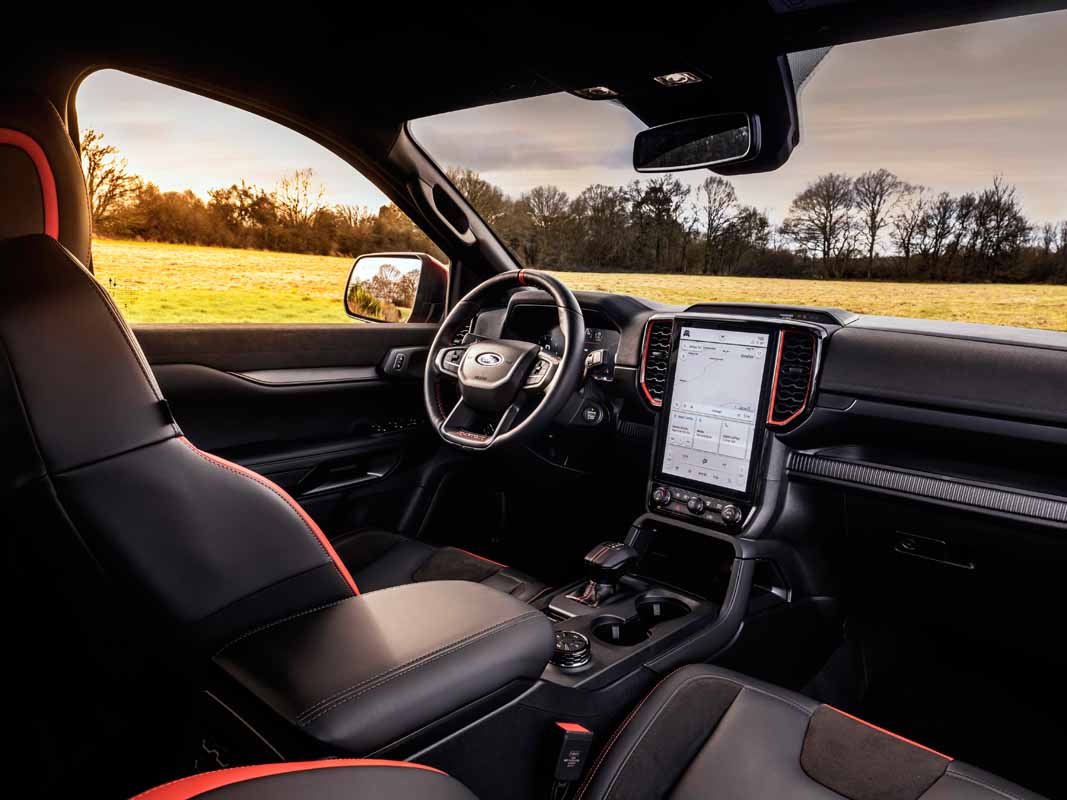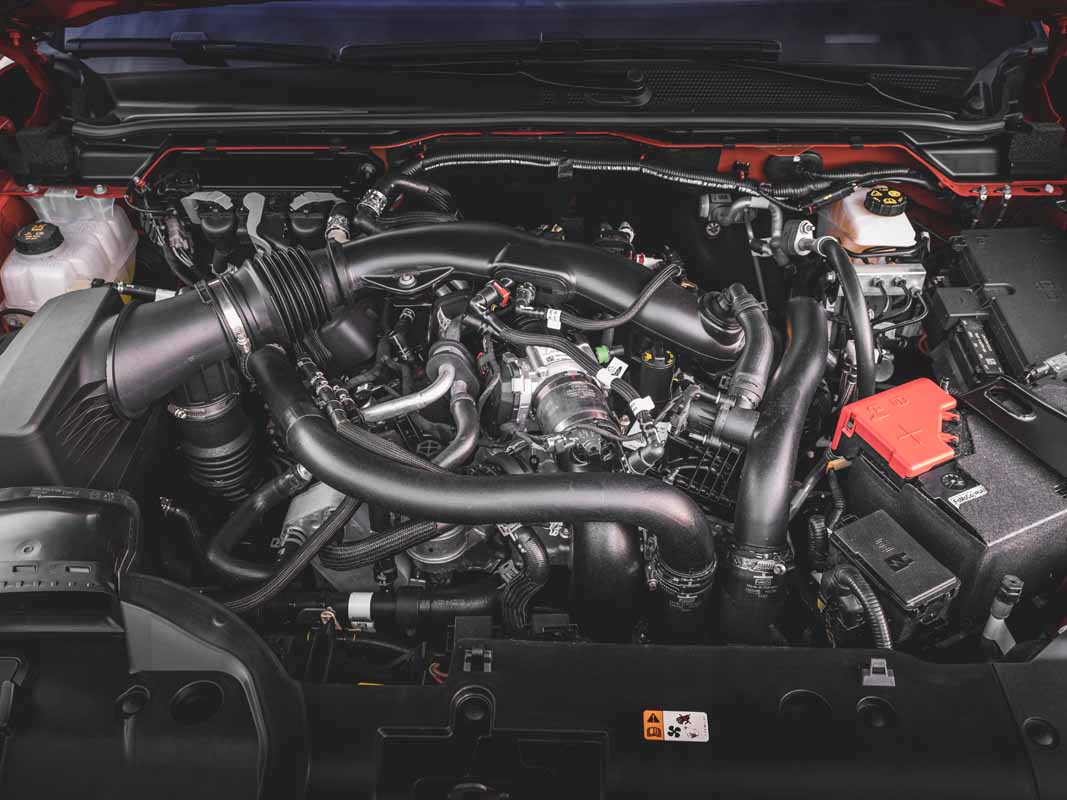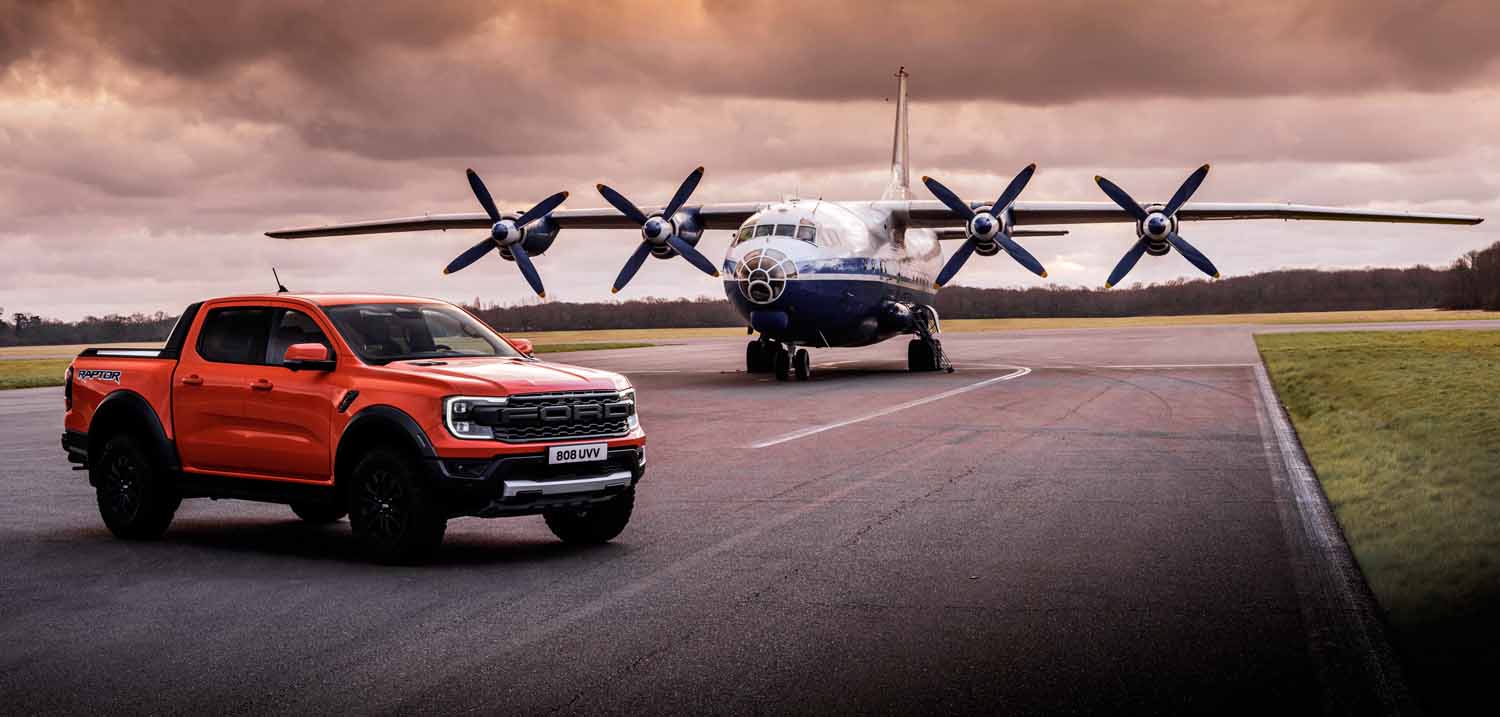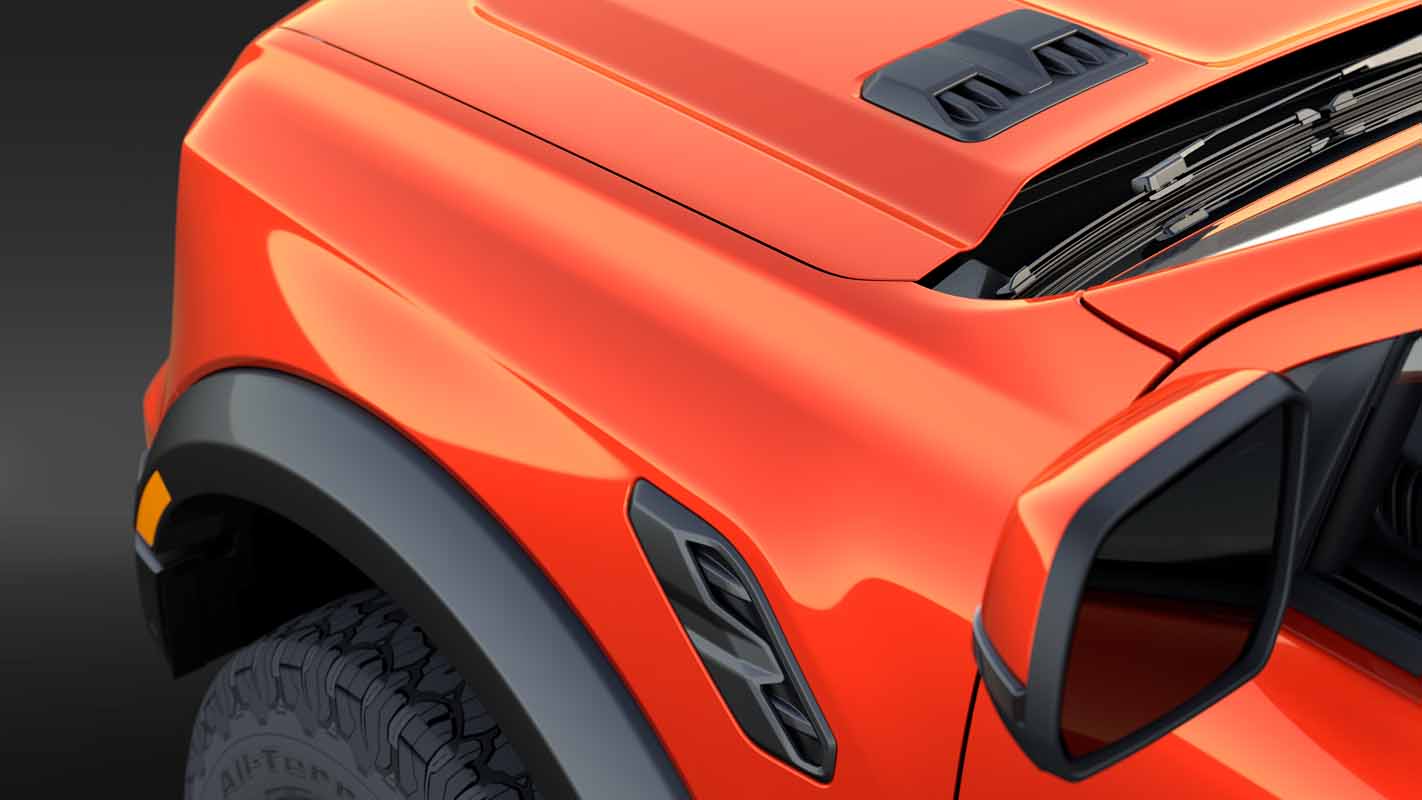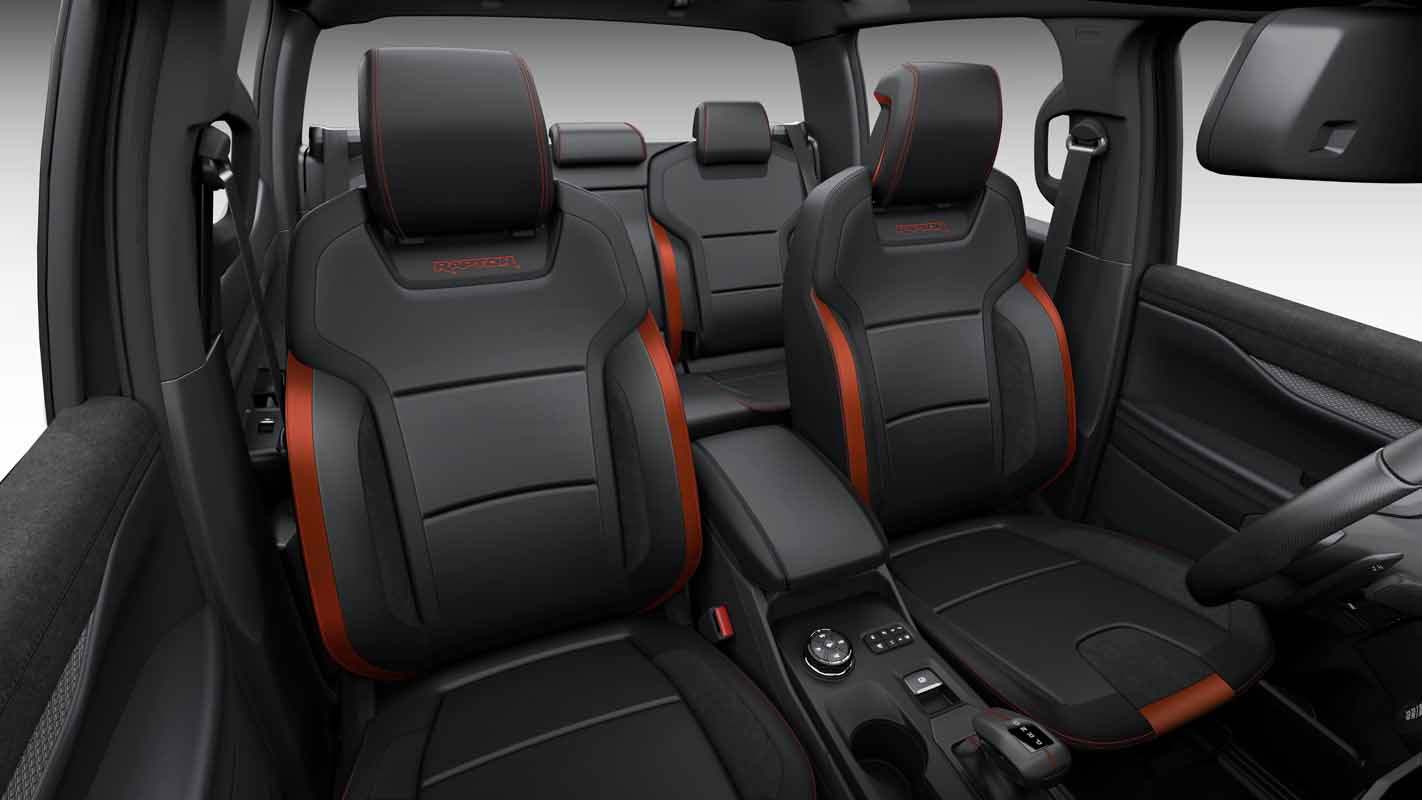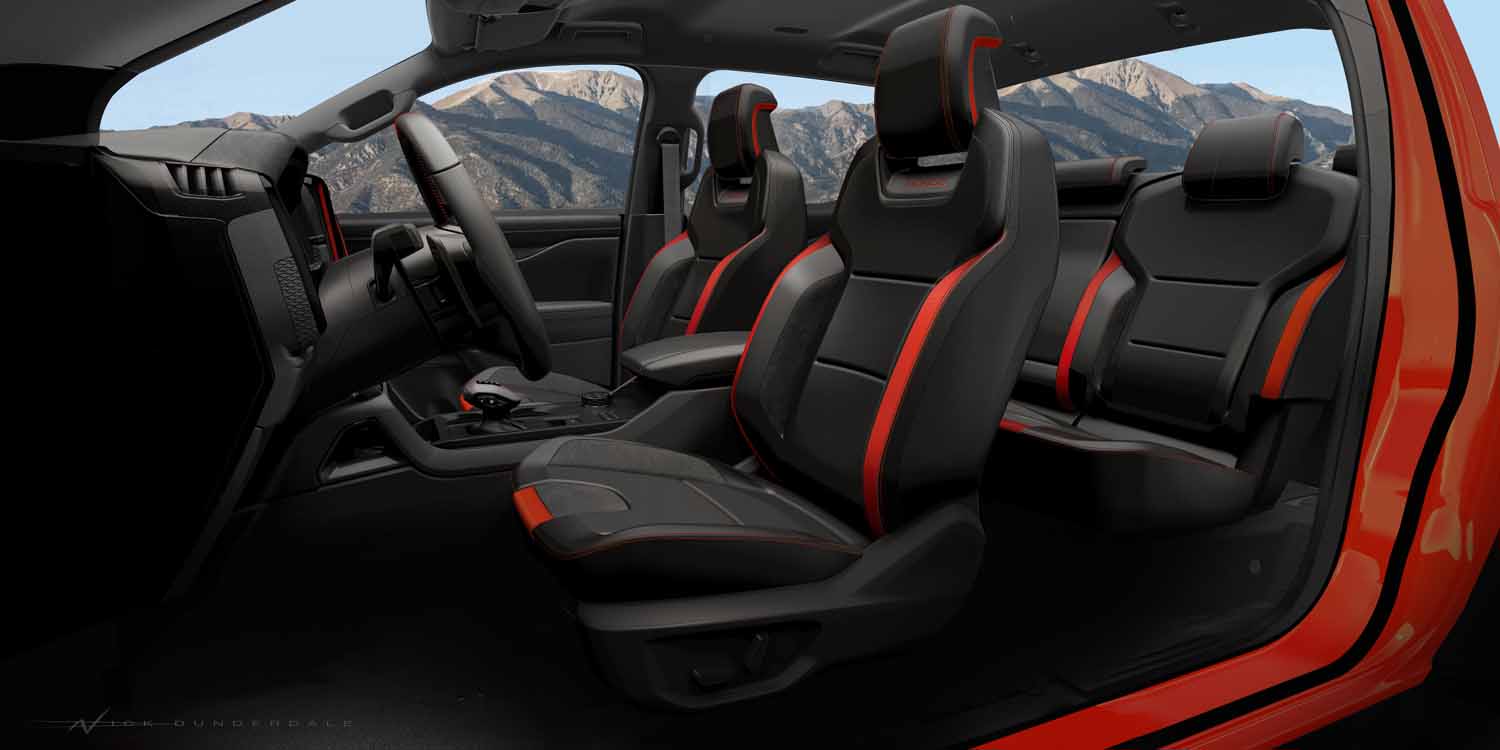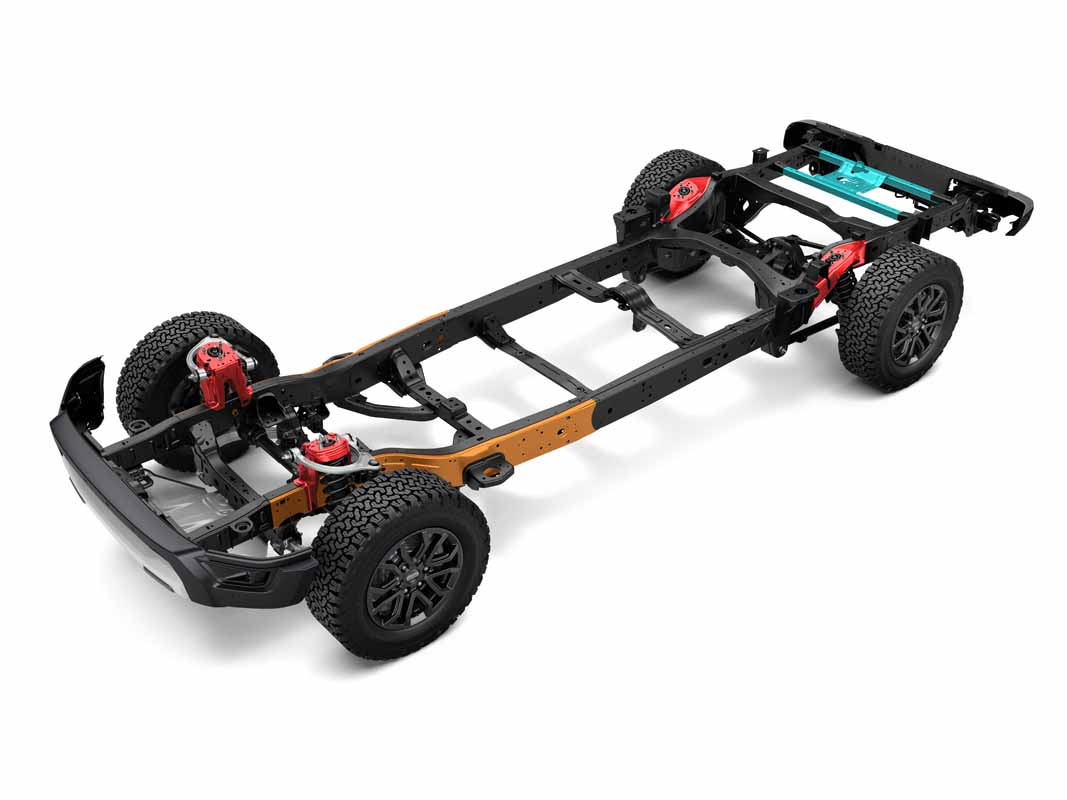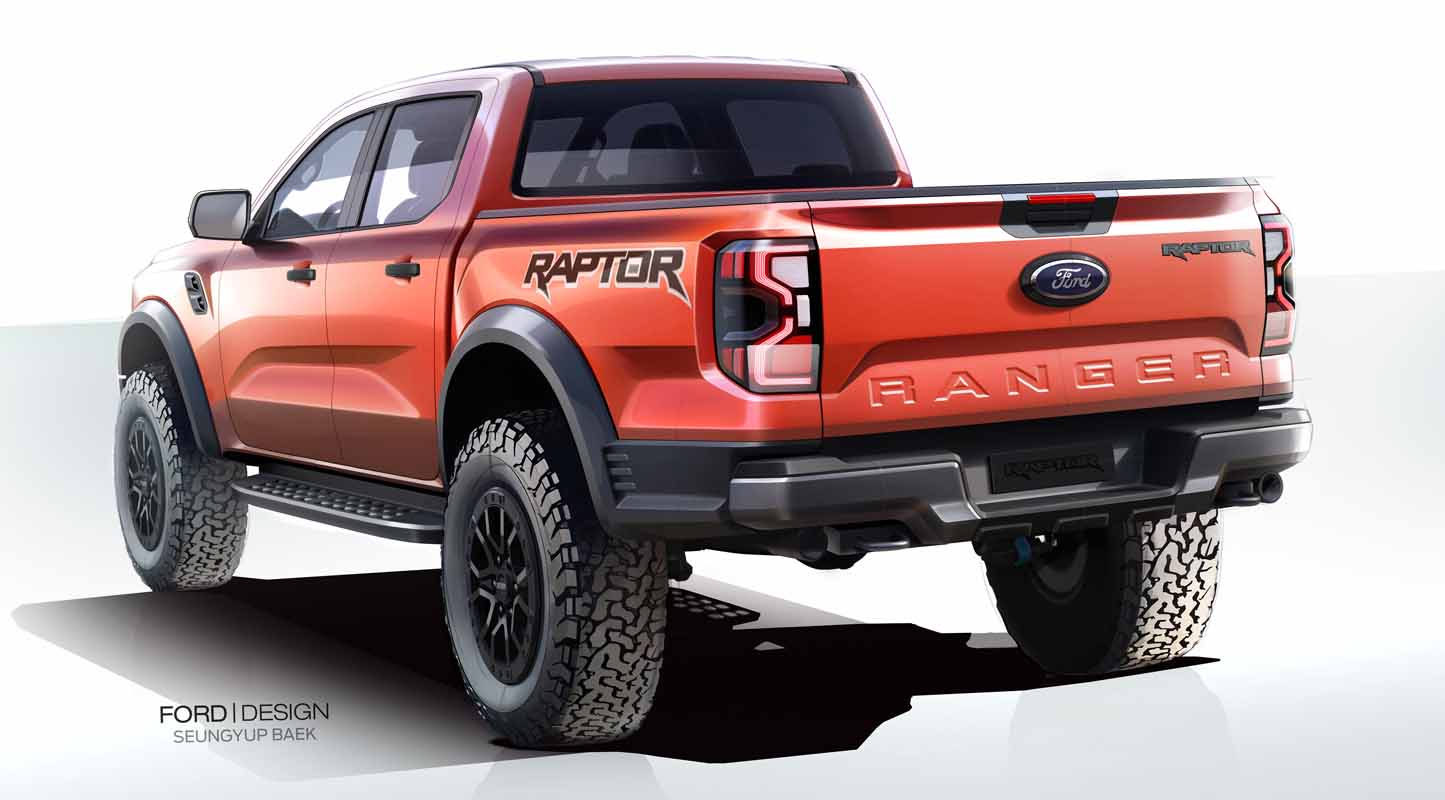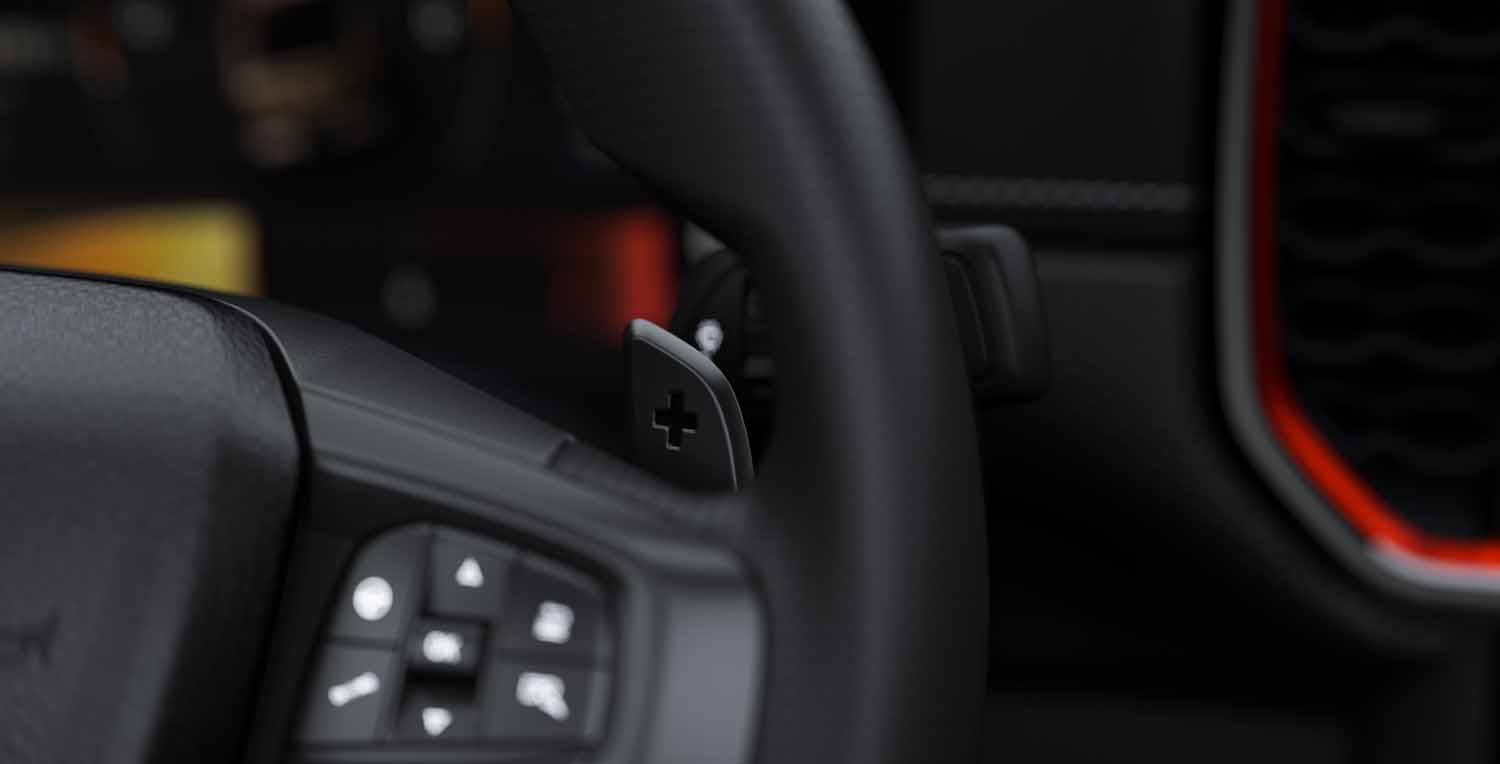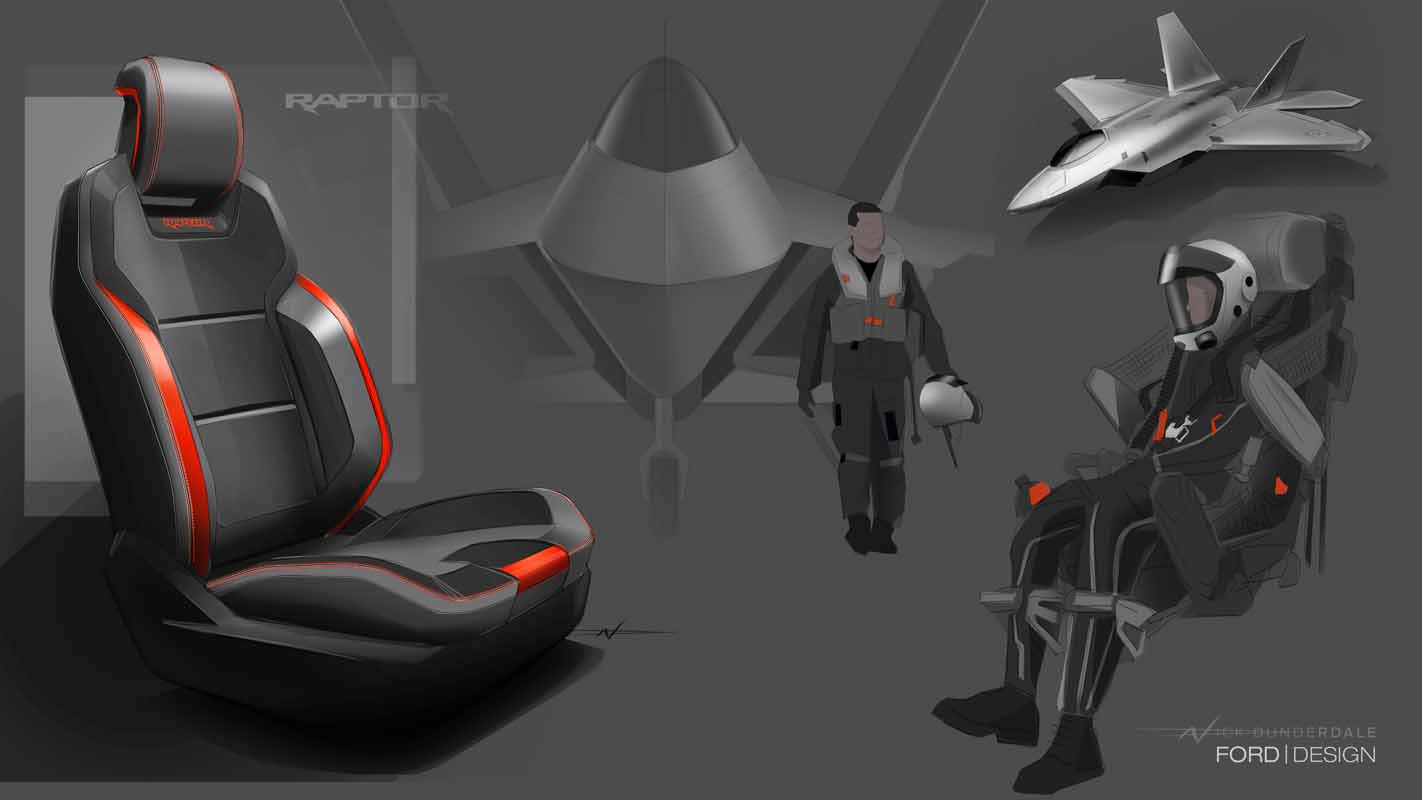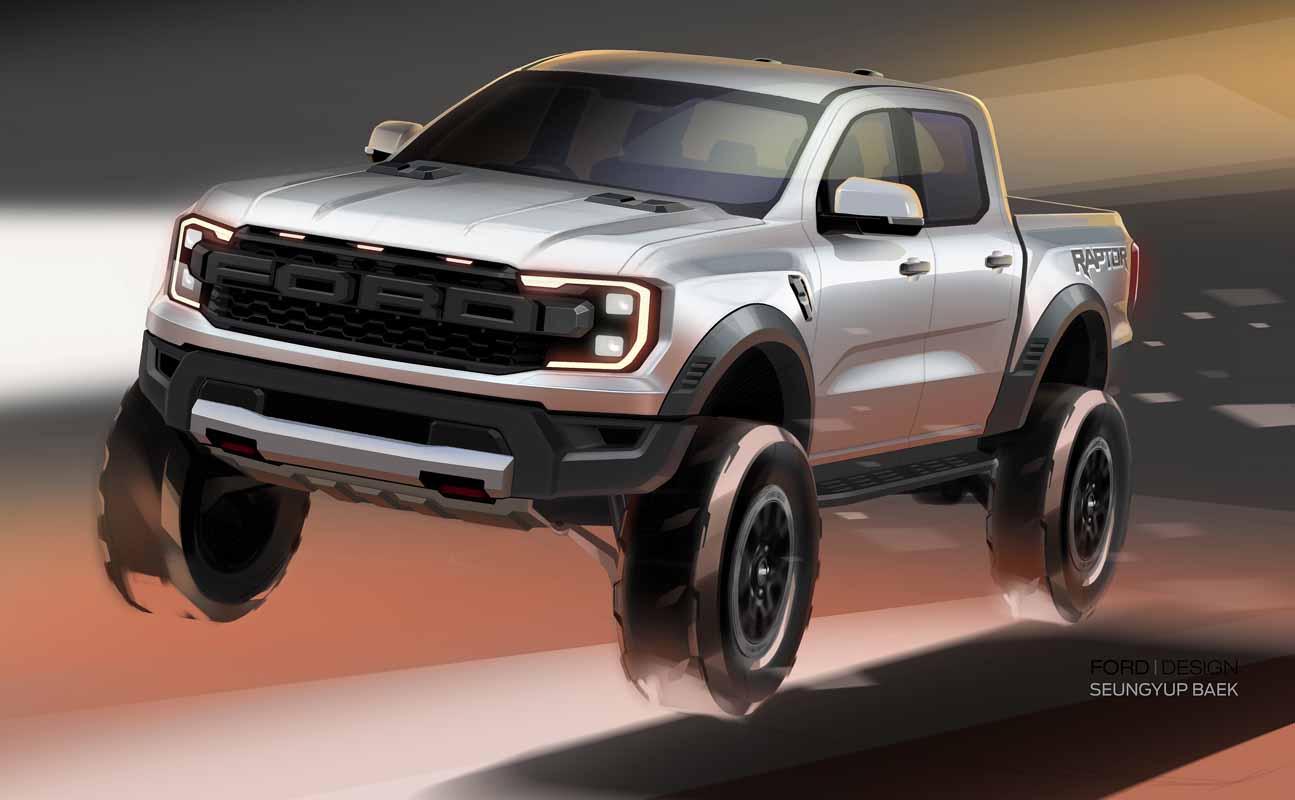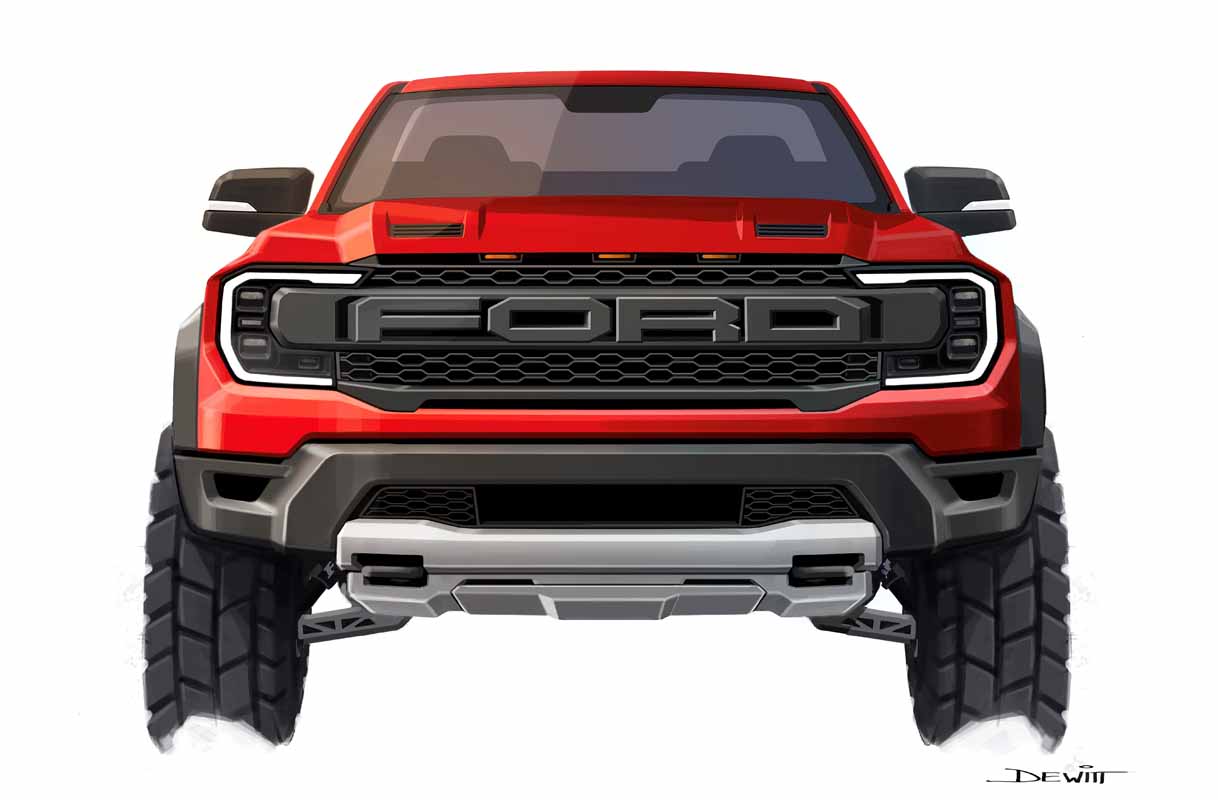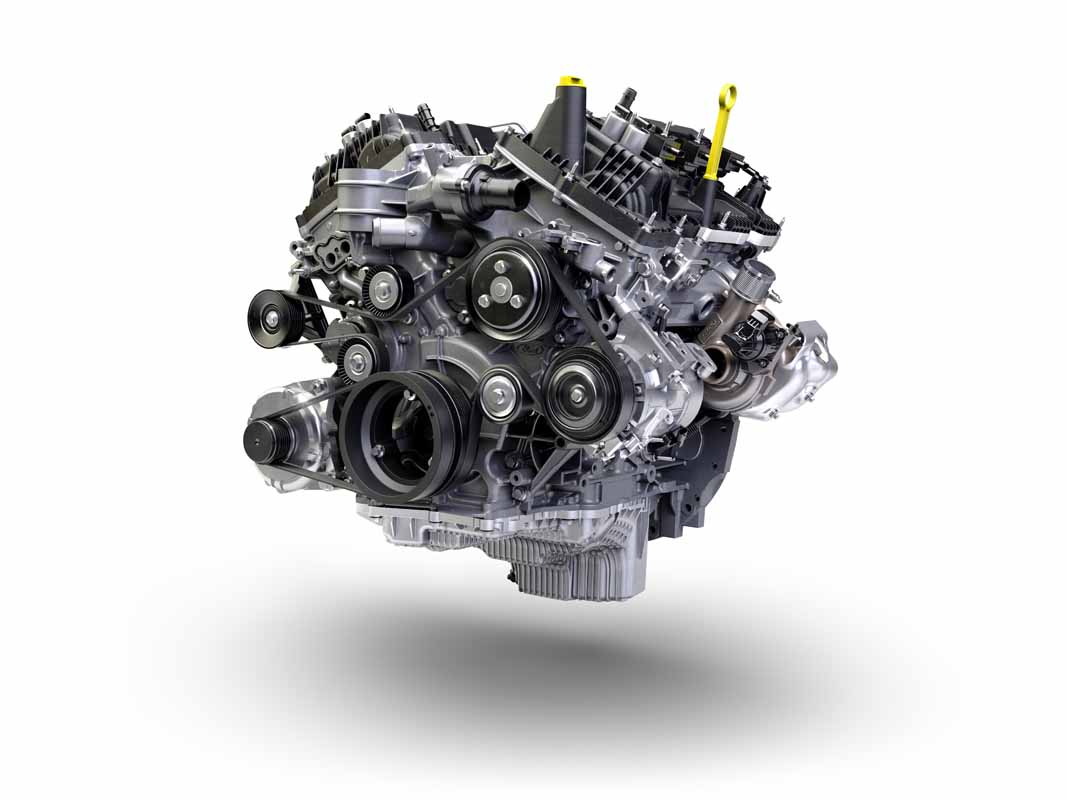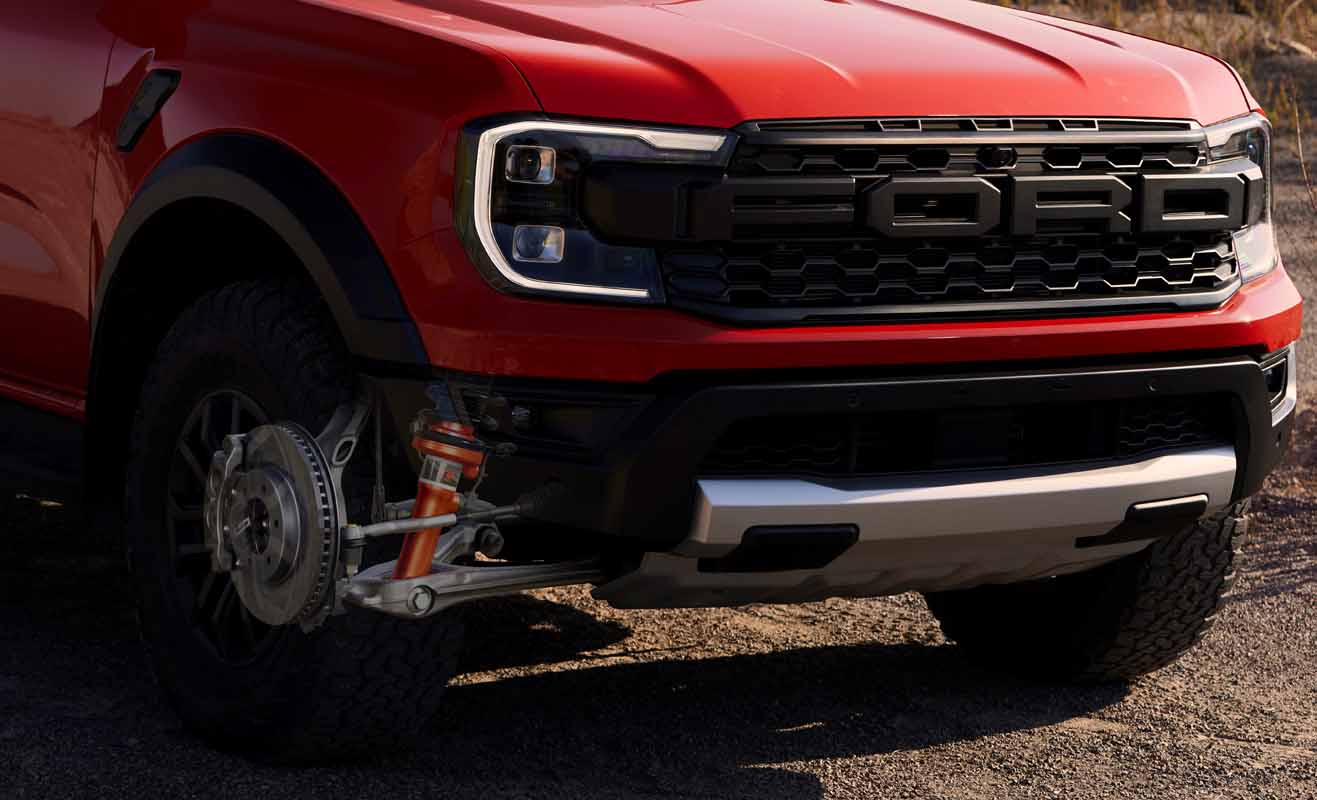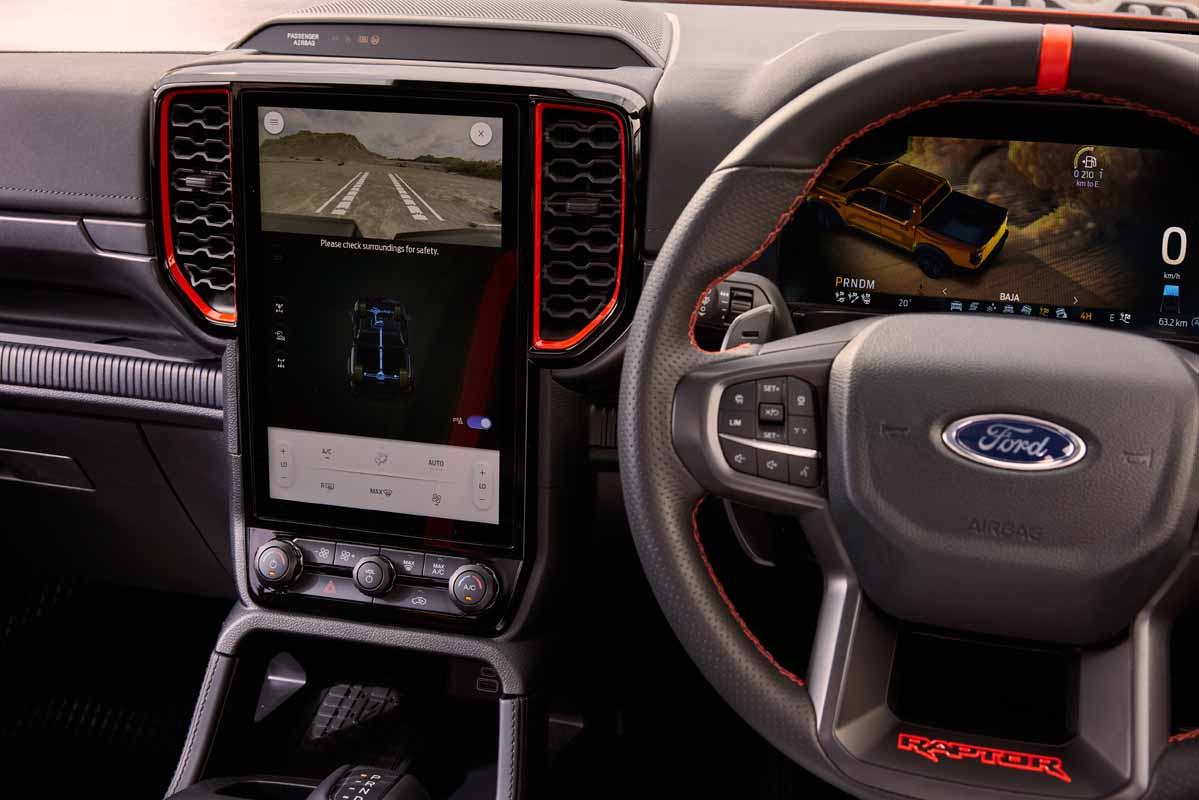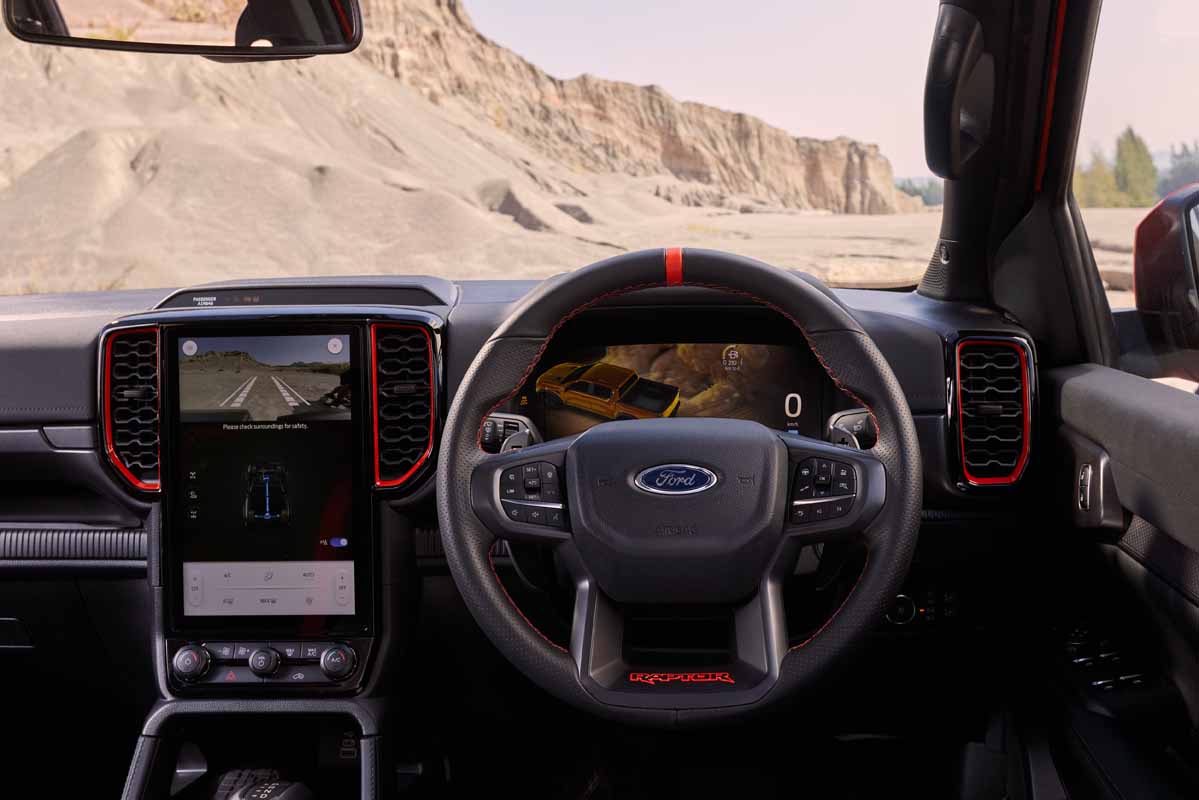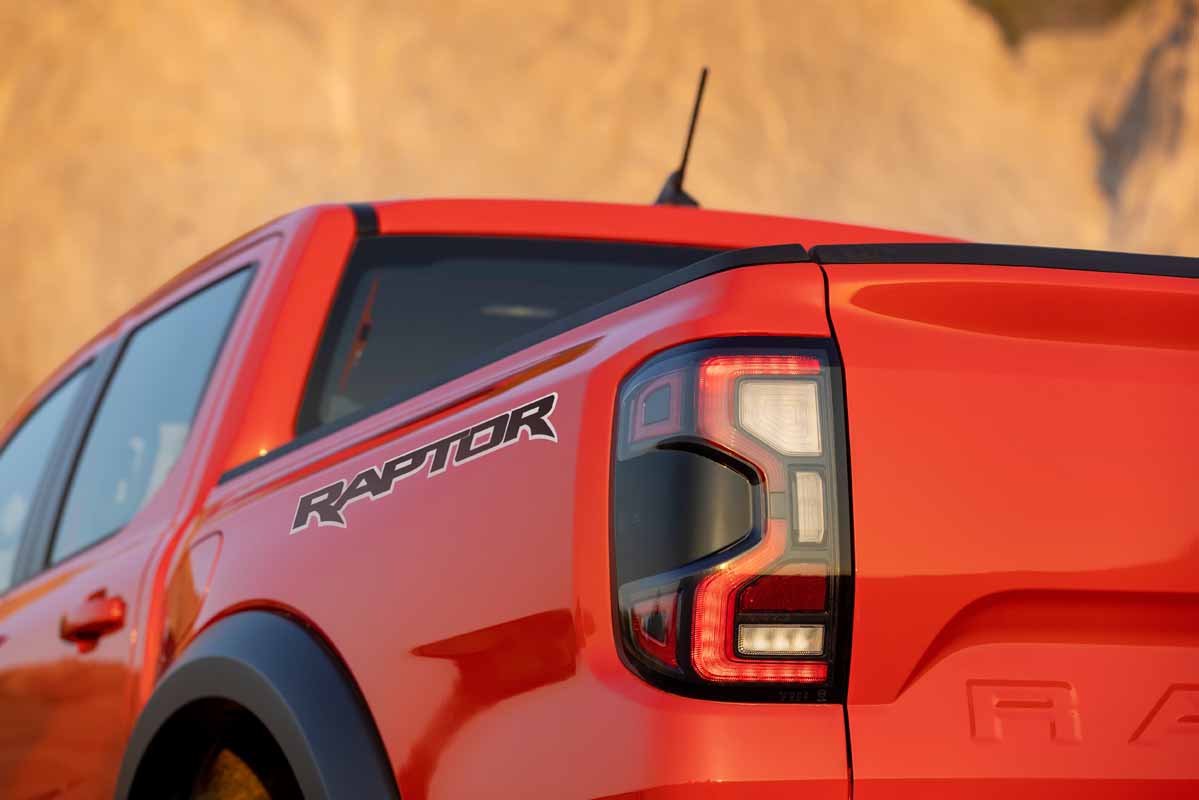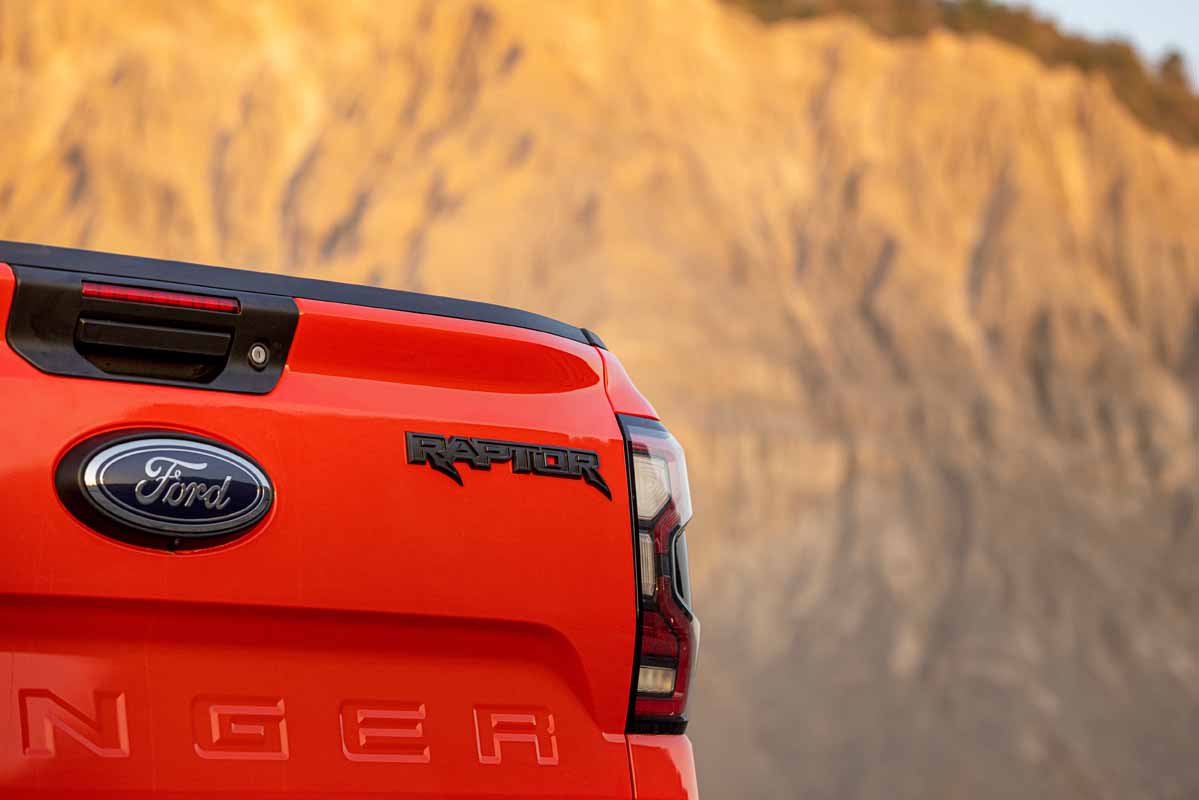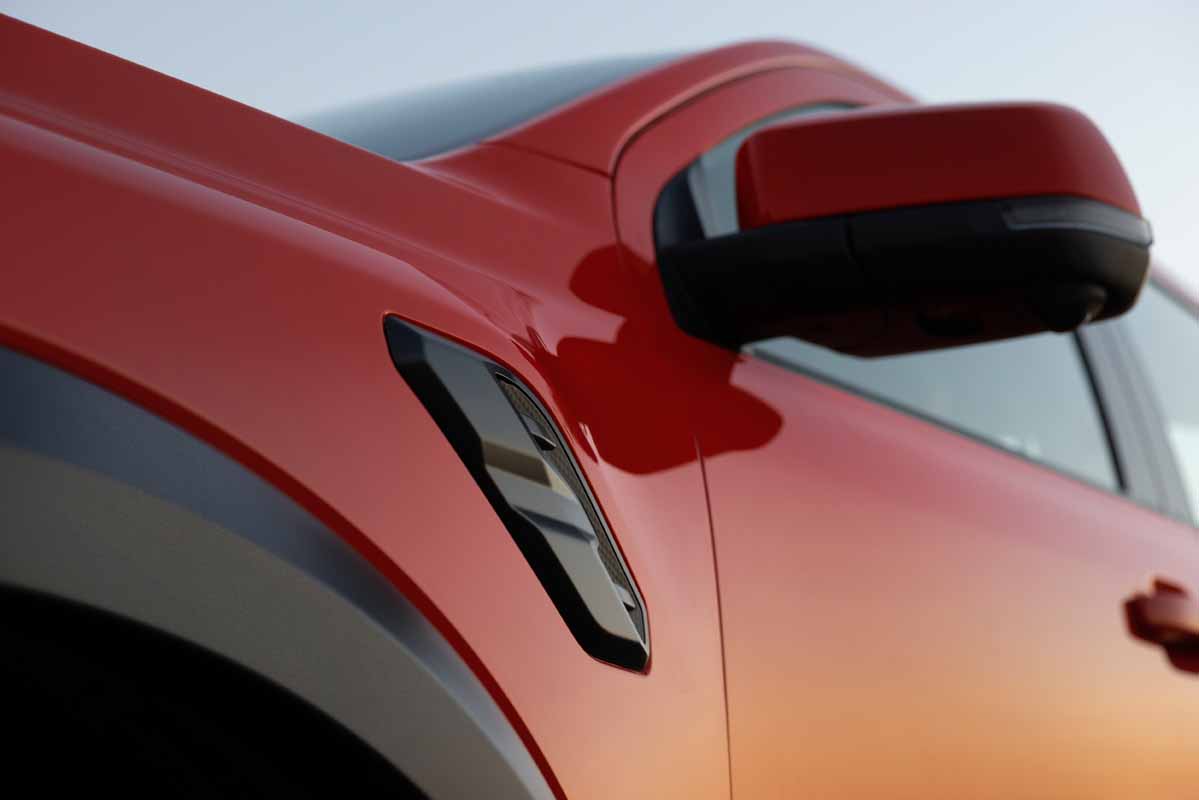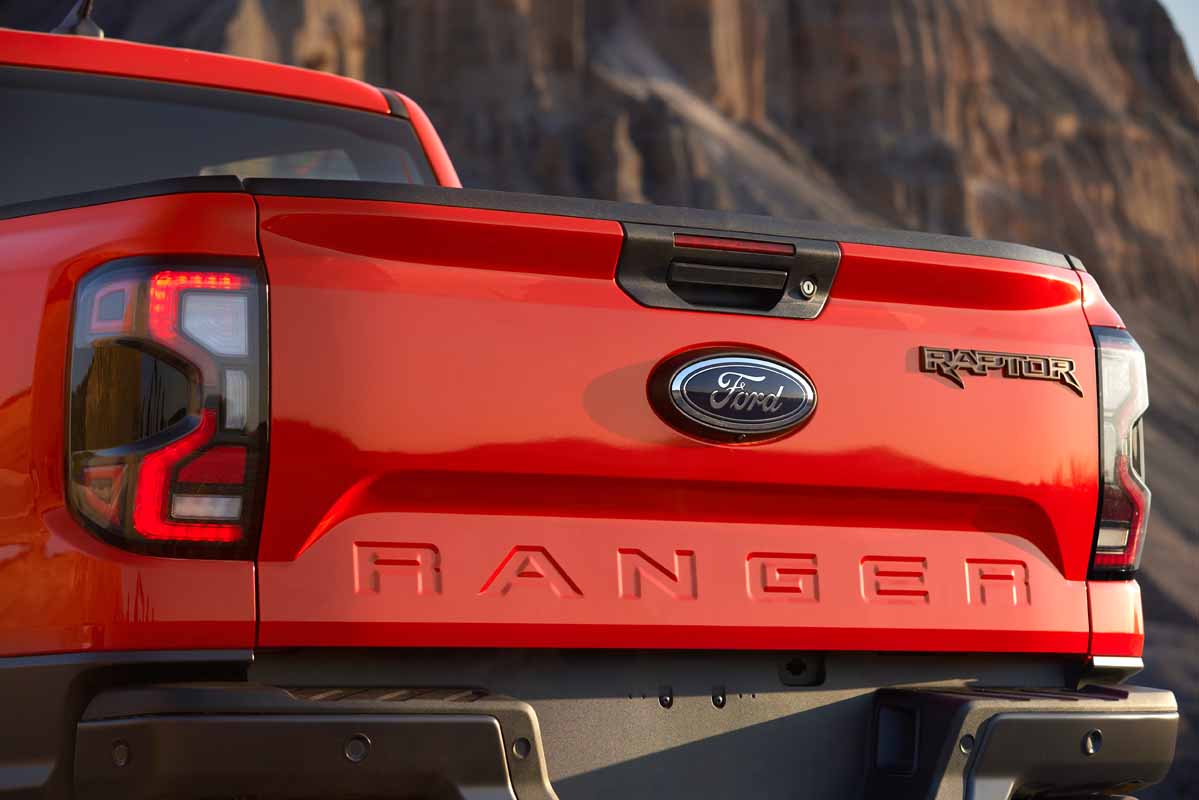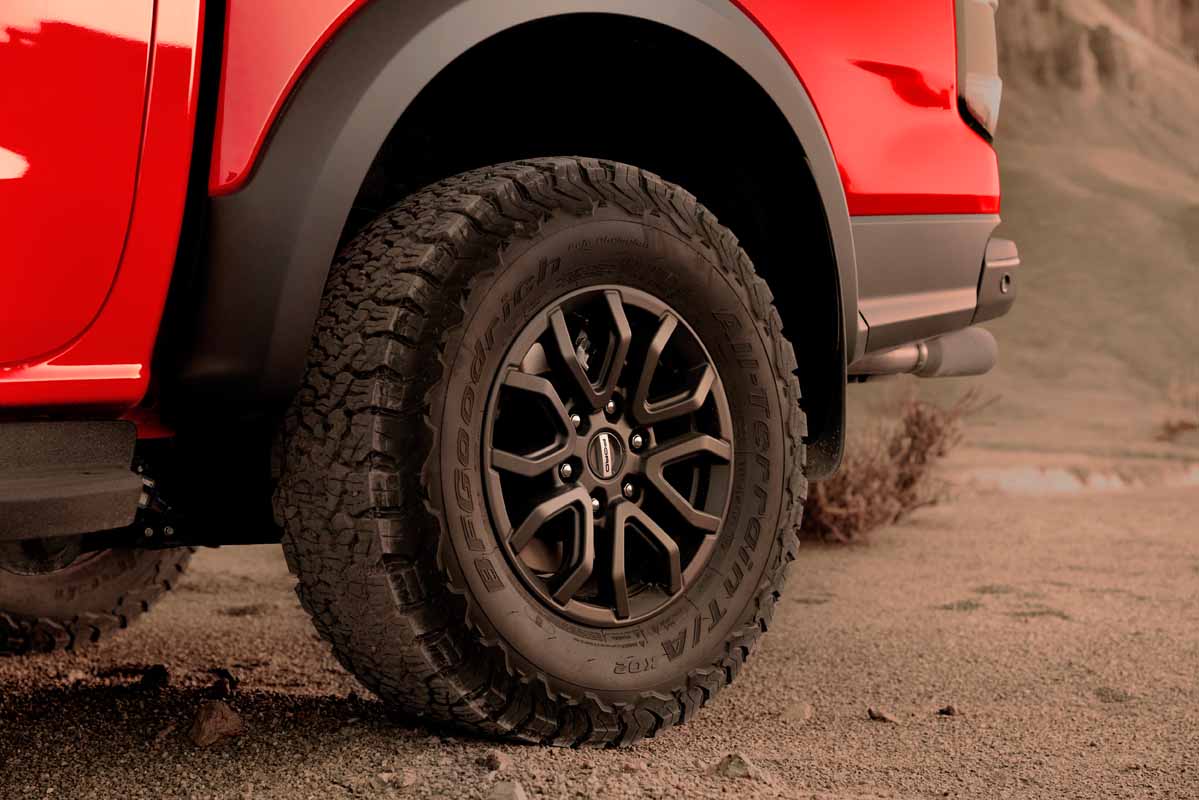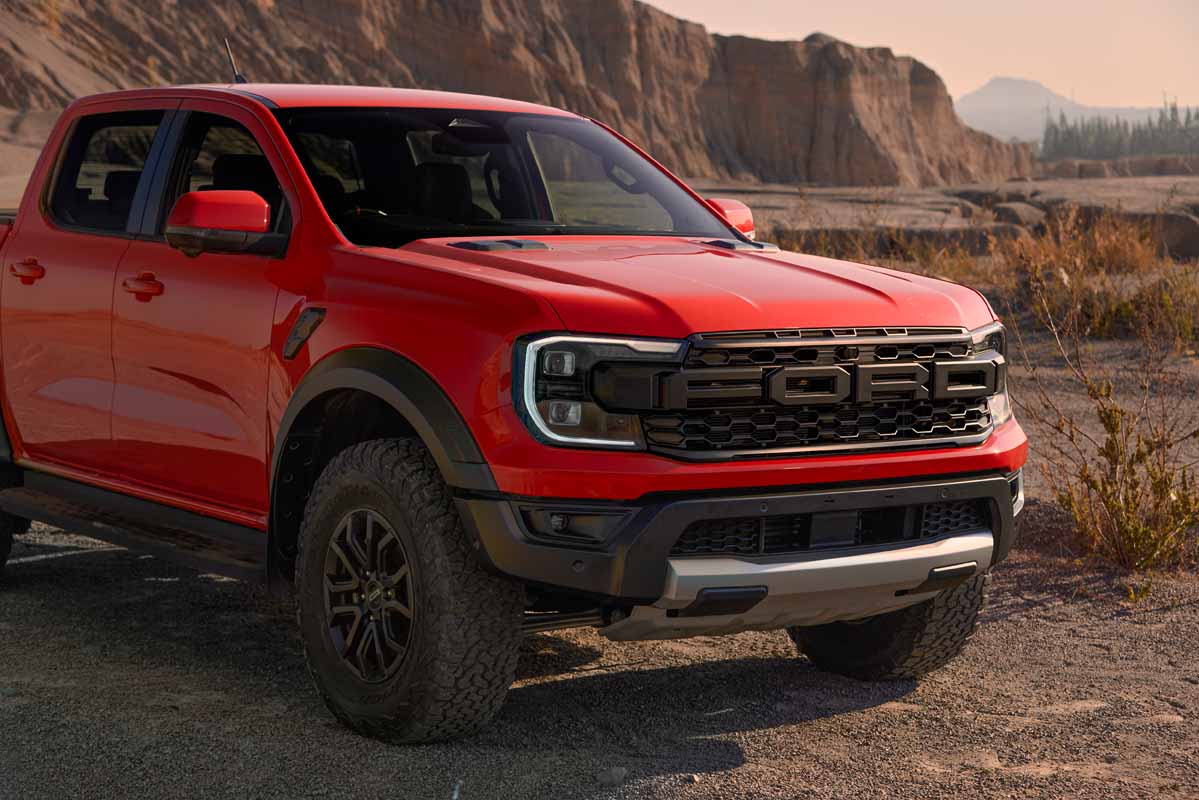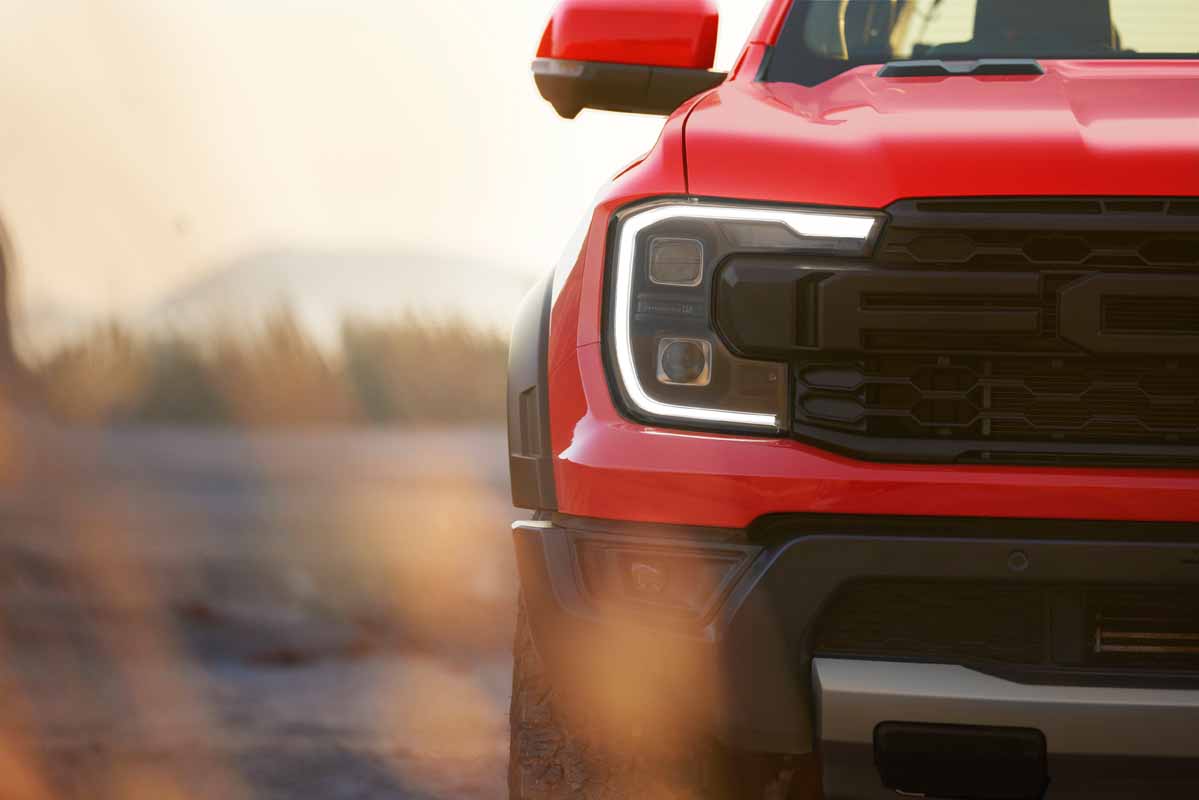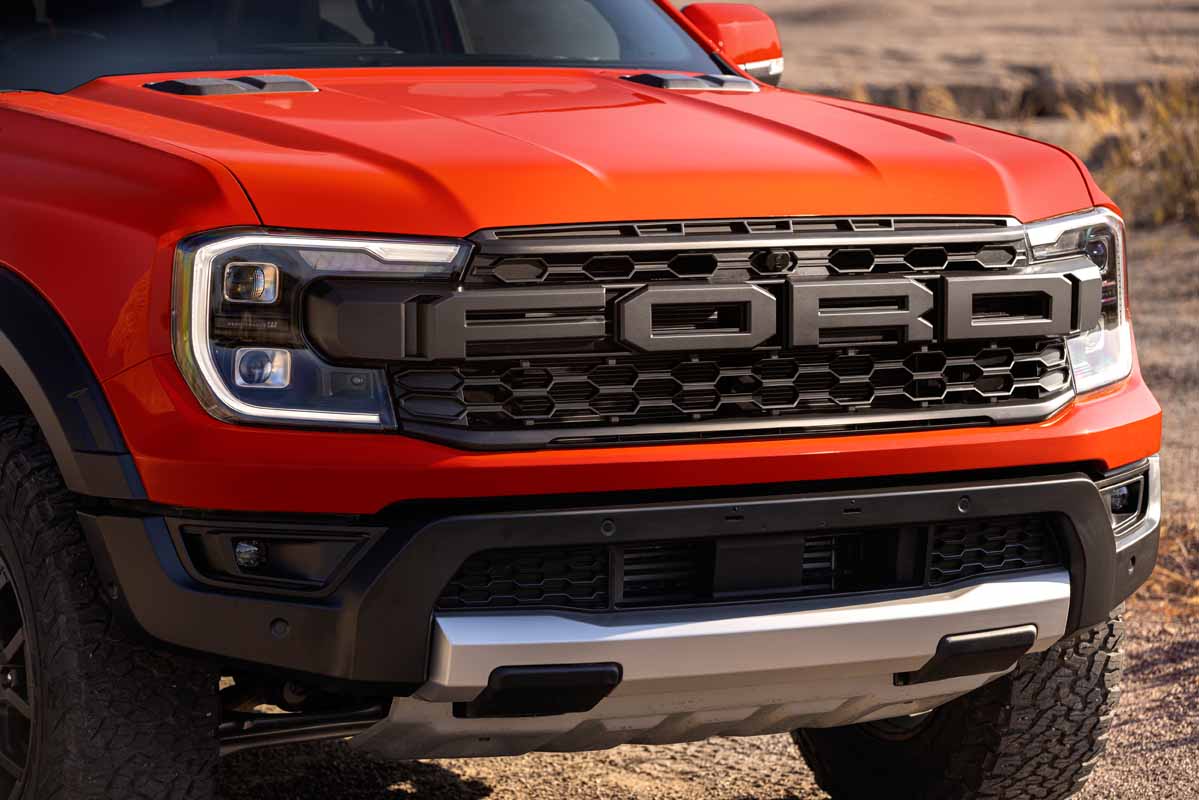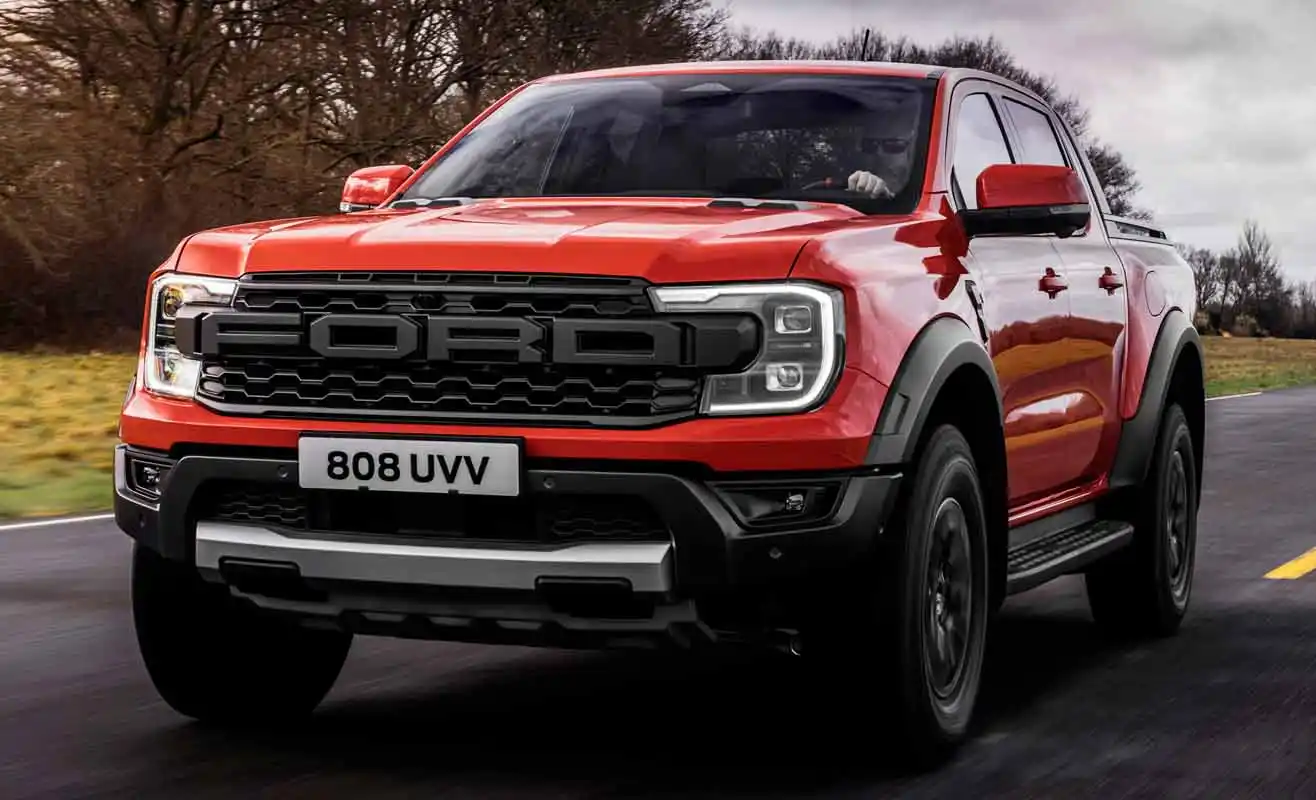
The next-generation and next-level Ford Ranger Raptor has arrived. Built to dominate in the desert, master the mountains and rule everywhere in between, the second-generation Ranger Raptor raises the off-road performance bar as a pickup built for true enthusiasts.
Developed by Ford Performance, Ranger Raptor is the ultimate performance derivative of the next-gen Ranger. With smarter technology controlling tougher, next-generation hardware, Ranger Raptor blends raw power with mechanical and technical precision to create the most advanced Ranger ever.
“We’ve really focused on delivering a genuine performance truck with the next-gen Ranger Raptor,” said Dave Burn, Ford Performance Chief Program Engineer for Ranger Raptor. “It’s significantly faster, looks incredible, is packed with new features, and is the strongest Built Ford Tough Ranger we’ve ever made.”
More Power to Play
The biggest news for performance fans is the introduction of a new twin-turbo 3.0-litre EcoBoost V6 producing up to 292kW (392hp) at 5650rpm and 583Nm of torque at 3500rpm tuned by Ford Performance.
The 2.0-litre Bi-Turbo diesel engine will be available in select markets on the next-gen Ranger Raptor from 2023, with market-specific details provided closer to launch.
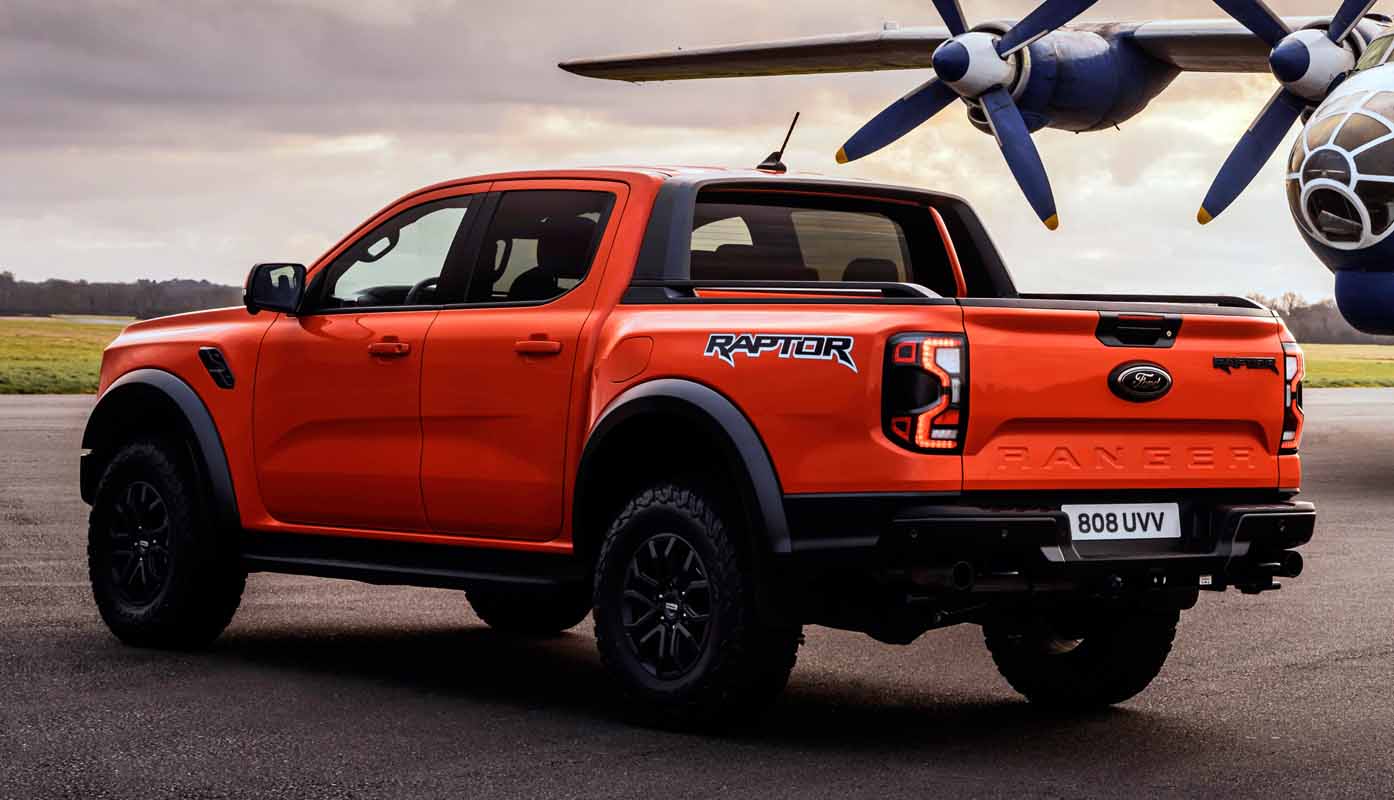
The Ranger Raptor’s anti-lag system keeps the turbochargers spinning for up to three seconds after the driver backs off the throttle, allowing for faster resumption of acceleration out of corners or between gears when the driver gets back on the accelerator.
“The 3.0-litre brings a different dynamic to the Ranger Raptor that will satisfy even the most hardcore performance enthusiast,” said Burn. “The acceleration and raw performance of the new powertrain leaves you grinning from ear-to-ear.”
Mated to a 10-speed automatic transmission – each gear programmed with its own boost profile – Raptor’s new engine delivers effortless acceleration on gravel, dirt, mud and sand. And, with an electronically controlled active exhaust system that amplifies the engine note in four selectable drive modes (Quiet, Normal, Sport and Baja), the Raptor’s vocal character ranges from mild to wild.
Drivers can choose their preferred engine sound by pressing a button on the steering wheel, or by selecting a drive mode that uses one of the following settings:
- Quiet – Designed to prioritise quietness over performance and sound. Great for keeping the peace with neighbours on early mornings.
- Normal – Intended for everyday use, this profile offers an exhaust note with presence while not being too loud for street use. This profile is applied by default to Normal, Slippery, Mud/Ruts, and Rock Crawl modes.
- Sport – Offers a louder and more aggressive note, for when you want to shake things up a little.
- Baja – This is the most aggressive of the exhaust profiles in both volume and note. It behaves more like a straight-through system in this setting and is intended for off-road use only.
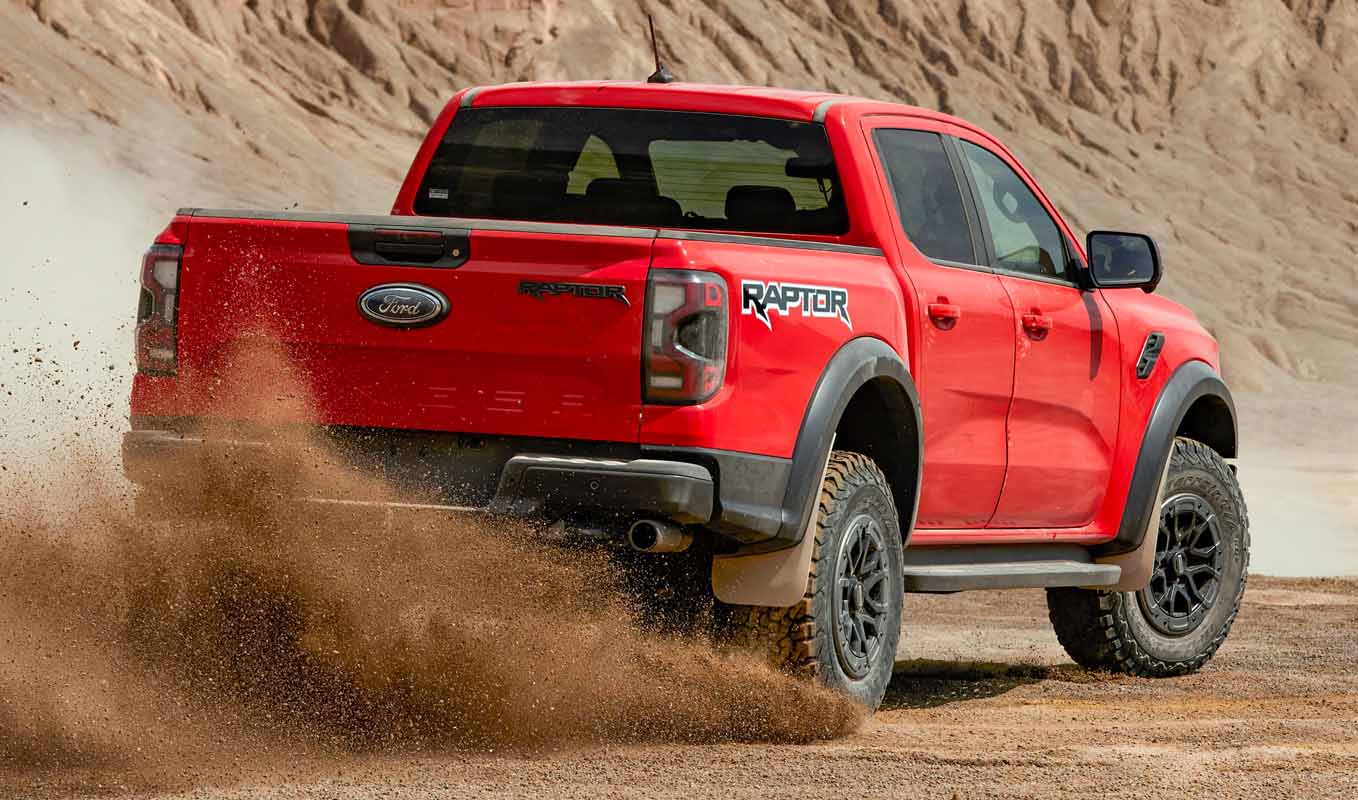
Hardware for the Heavy Hitters
The next-gen Ranger Raptor has a unique chassis when compared to next-gen Ranger. A series of unique mounts and reinforcements, for elements including the C-pillar, load box and spare wheel, as well as unique frames for the jounce bumper, shock tower and rear shock bracket all combine to ensure next-gen Ranger Raptor can handle punishing off-road conditions.
A high-performance off-roader like the Ranger Raptor needs the running gear to match, and Ranger Raptor’s suspension is completely redesigned. All-new tough, lightweight aluminium upper and lower control arms, long travel front and rear suspension and refined Watt’s link rear end have been designed to deliver more control across rough terrain at high speed.
“The new suspension upgrades in the Ranger Raptor make the most of the new Fox Live Valve dampers. The suspension adapts in real time to enable exceptional on-road body control while absorbing corrugations and bigger ruts off-road with ease ensuring maximum control and performance,” said Burn.
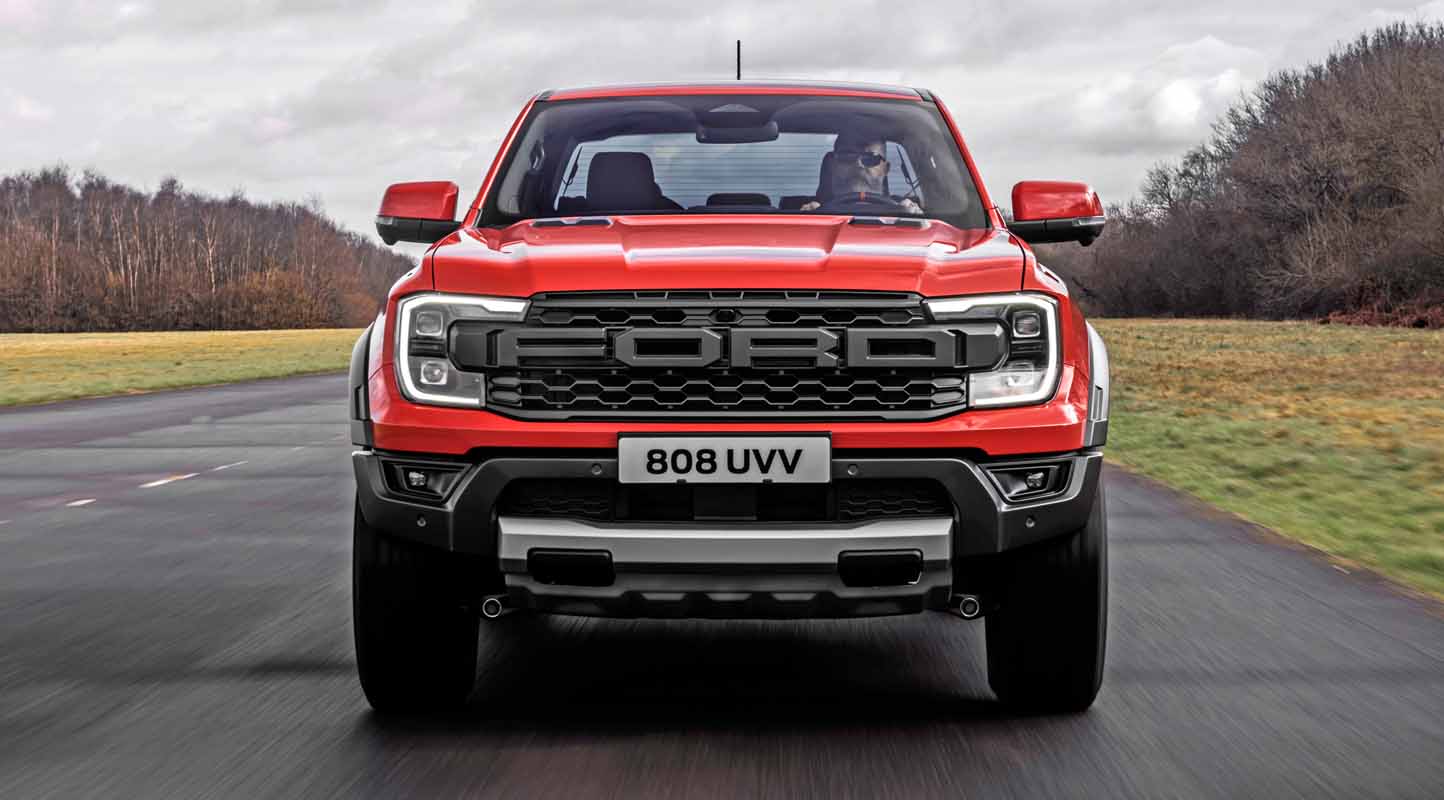
Soaking up those humps and bumps are next-generation FOX 2.5-inch Live Valve Internal Bypass shock absorbers with cutting-edge control technology offering position-sensitive damping capability. These shock absorbers are the most sophisticated ever on Ranger Raptor and are filled with Teflon™-infused oil that reduces friction by around 50 percent compared to those on the previous Raptor.
While the hardware is FOX, the tuning and development work was carried out by Ford Performance using a mixture of computer-aided engineering (CAE) and real-world testing. Everything from adjusting the spring rates to setting the ride , valve tuning and honing the ride zones was performed to create the perfect balance between comfort, control, stability and traction on- and off-road.
Linked to Ranger Raptor’s revised selectable drive modesii, the Live Valve Internal Bypass system has been developed to provide better on-road comfort and off-road ride quality both at high and low speed.
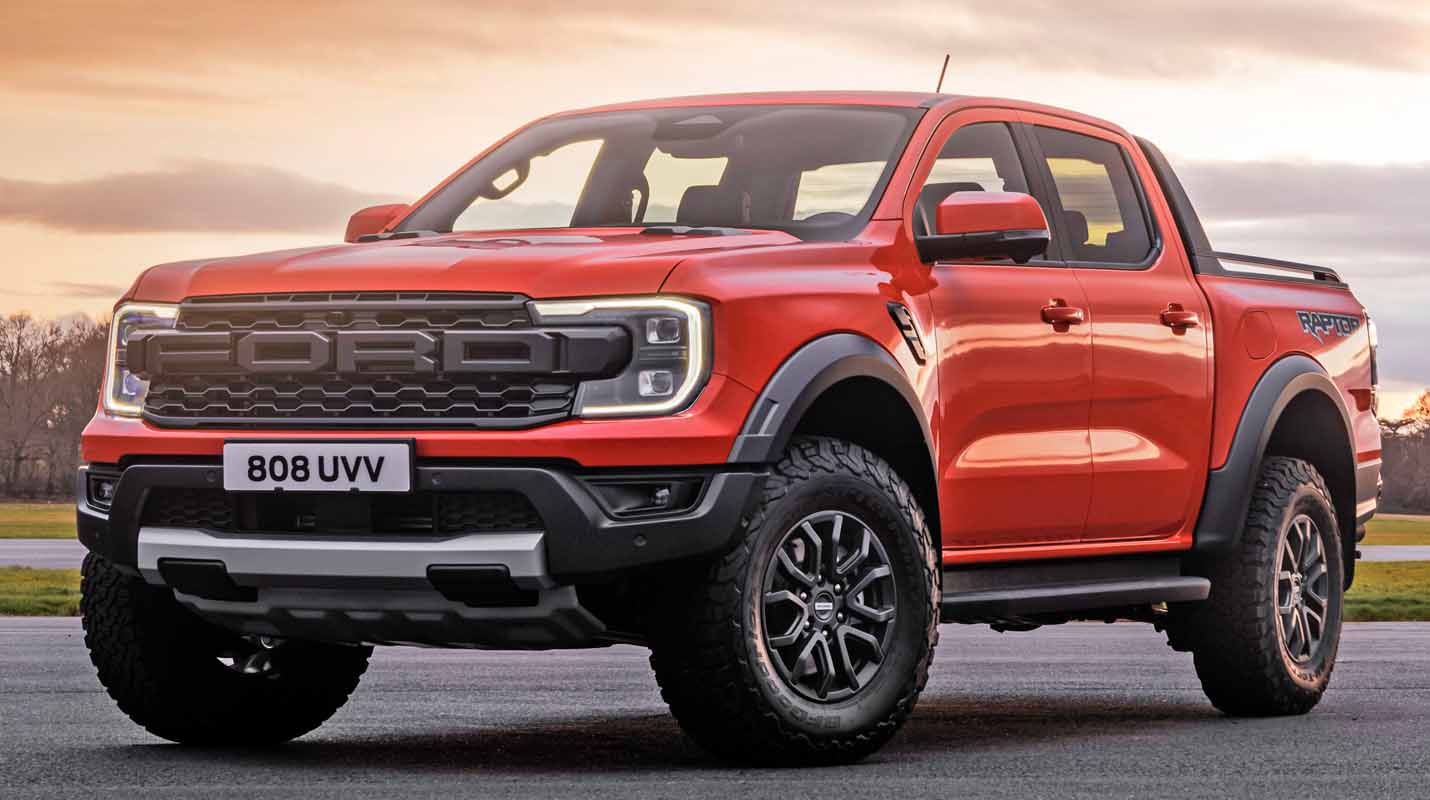
In addition to working with the drive modes, the system works in the background to prepare the Ranger Raptor for different conditions. As the shocks compress, different zones within the bypass system give exactly the amount of support needed for the travel being used, and work in reverse as the shocks rebound back to full .
To provide protection against severe bottom outs, FOX’s race-proven Bottom-Out Control provides maximum damping force in the last 25 percent of shock travel. Similarly, the system can stiffen the rear dampers to prevent Ranger Raptor from squatting under hard acceleration, improving vehicle stability. With the shocks providing the right amount of damping force at every position, the Ranger Raptor stays planted on both the road and track.
Ranger Raptor’s ability to tackle rough terrain is further enhanced with some serious underbody protection. The front bash plate is almost double the size of the standard Ranger bash plate and made from 2.3mm-thick high-strength steel. This bash plate, combined with the engine under shield and transfer case shield, provides protection for key components like the radiator, steering system, front cross member, engine sump and front differential.
And twin rated tow hooks at the front and rear provide flexible recovery options while driving off-road, with the added benefit of always being able to access one of the tow hooks (if the other is buried), as well as being able to use balance straps during snatch recoveries in deep sand or thick mud.
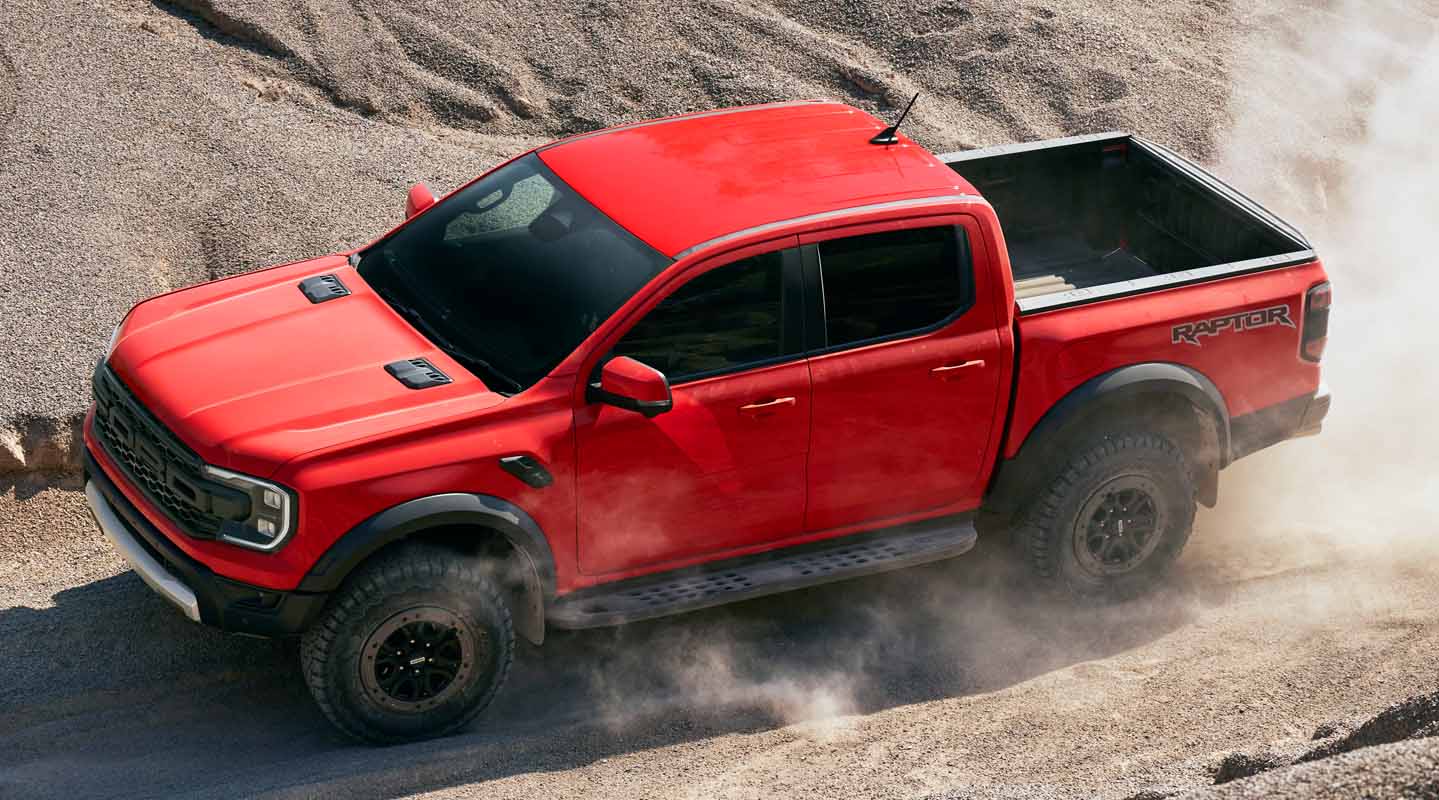
All Terrain Control
For the first time, Ranger Raptor gets an advanced permanent four-wheel drive system with an all-new electronically controlled on-demand two-speed transfer case, combined with front and rear locking differentials, a feature that hardcore off-roaders will appreciate.
“While Ranger Raptor was inspired by desert racers, it’s also a supremely capable overlanding vehicle. Out of the box we’ve created an off-road vehicle that you don’t need to modify to get you where you need to go and back again safely,” said Burn
Helping next-gen Ranger Raptor handle anything from smooth roads to mud and ruts and everything in between are up to seven selectable drive modes, including the off-road oriented ‘Baja’ mode for extreme high-speed off-roading. In ‘Baja’ mode electronic systems are configured for ultimate performance.
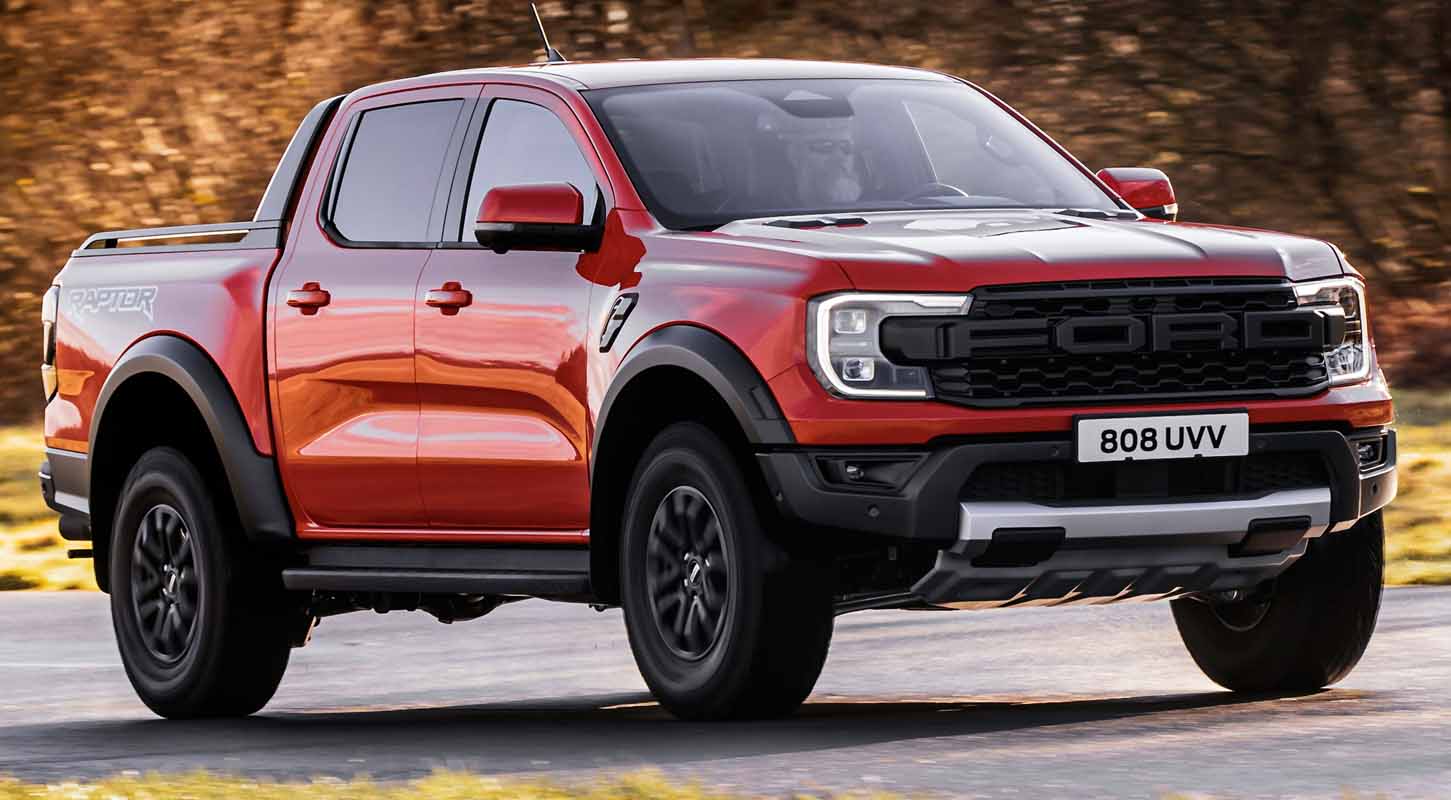
“We really wanted the Baja mode to be the ultimate expression of the off-road high-speed capability,” said Burn. “It’s a feature at the core of what the Ranger Raptor customer expects.”
Each selectable drive modeii adjusts a number of elements from engine and transmission to ABS sensitivity and calibration, traction and stability controls, exhaust valve actuation, steering, throttle response, and even the instrument cluster and centre touchscreen. And depending on the mode, the colour scheme of the digital displays changes to match the mode.
On-road
- Normal – designed for comfort, fuel efficiency and drivability;
- Sport – more responsive for spirited on-road driving; and
- Slippery – for more confident driving on off-road slippery or uneven surfaces.
Off-road
- Rock Crawl – providing optimum traction and momentum on loose surfaces;
- Sand – for use in soft sand and deep snow conditions, optimising power delivery and transmission shifts;
- Mud/Ruts – for maximum grip off-road during launch and maintaining vehicle momentum; and
- Baja – tuned for high-speed off-road performance with all systems set for maximum attack.
Next-gen Ranger Raptor also comes with Trail Control™, which is like cruise control for off-roading. The driver simply selects a set speed (less than 32km/h), and the vehicle manages acceleration and braking while the driver concentrates on steering through difficult terrain.
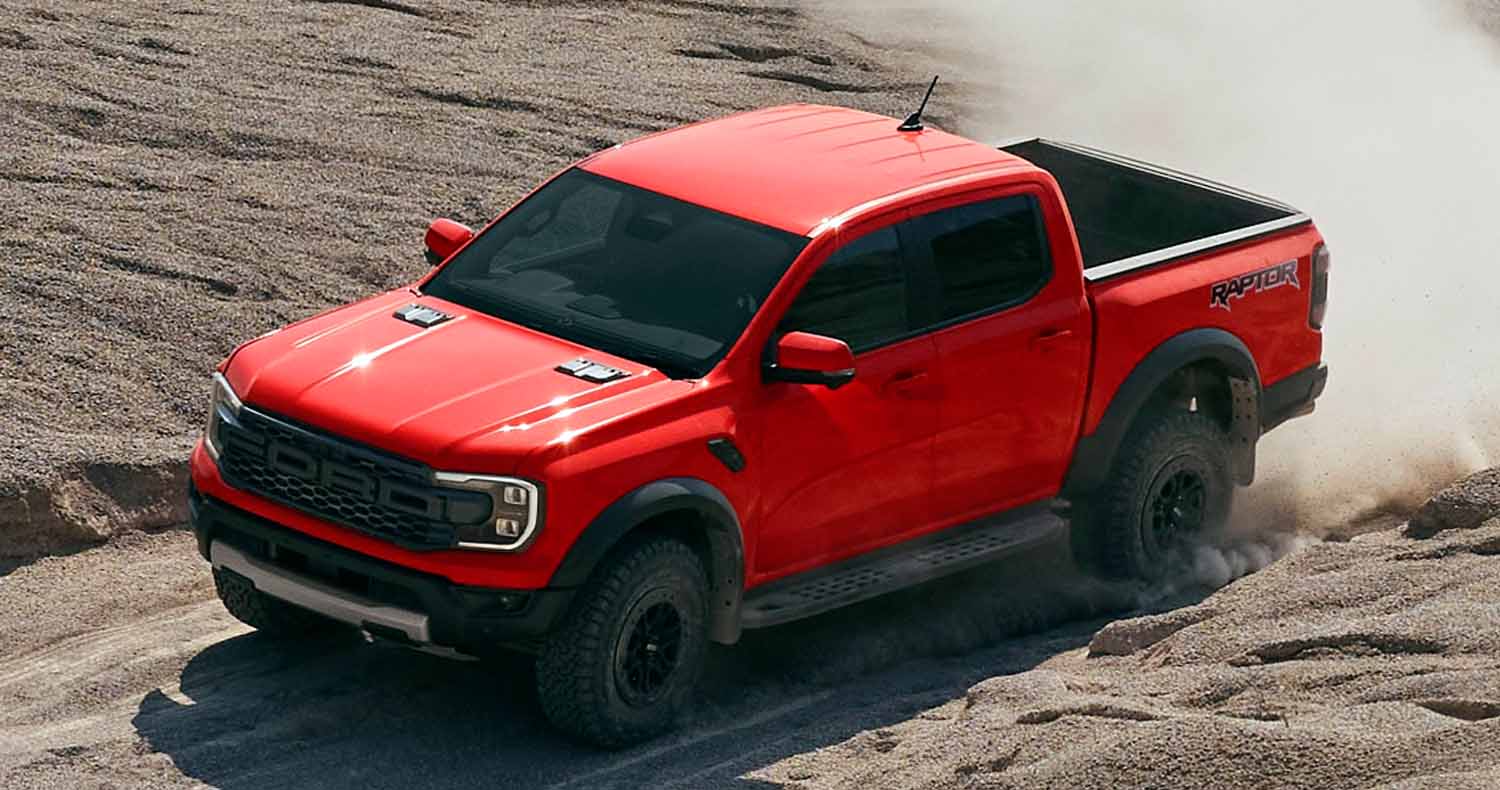
High Energy Design
Matching the enhanced capability of Ranger Raptor is an all-new design that takes the design of the next-gen Ranger to the next level. Emphasising the width of the pickup are flared wheel arches, Ford truck DNA C-clamp headlights, bold F-O-R-D lettering on the grille, and the bumper that’s separated from the grille.
“Everything designed for the Ranger Raptor is there for a reason,” said Dave Dewitt, Ranger Raptor exterior design manager. “We’re communicating what Raptor can do just by the way it looks.”
The Matrix LED headlights with LED daytime running lights push lighting performance to new levels, featuring dynamic bending lights, glare-free high beam and auto dynamic levelling to deliver safer lighting for Ranger Raptor drivers as well as oncoming traffic.
The flared fenders accommodate a choice of two muscular 17-inch wheel designs, one with beadlock capability, and each wrapped in BFGoodrich® all-terrain KO2® tyres. Functional vents, aero features, and tough, new-design cast aluminium side steps help enhance the look and functionality of the truck. At the rear, LED taillights provide a signature link to the front, while the precision grey rear bumper features an integrated step pad and towbari that is tucked up high to aid the truck’s departure angle.
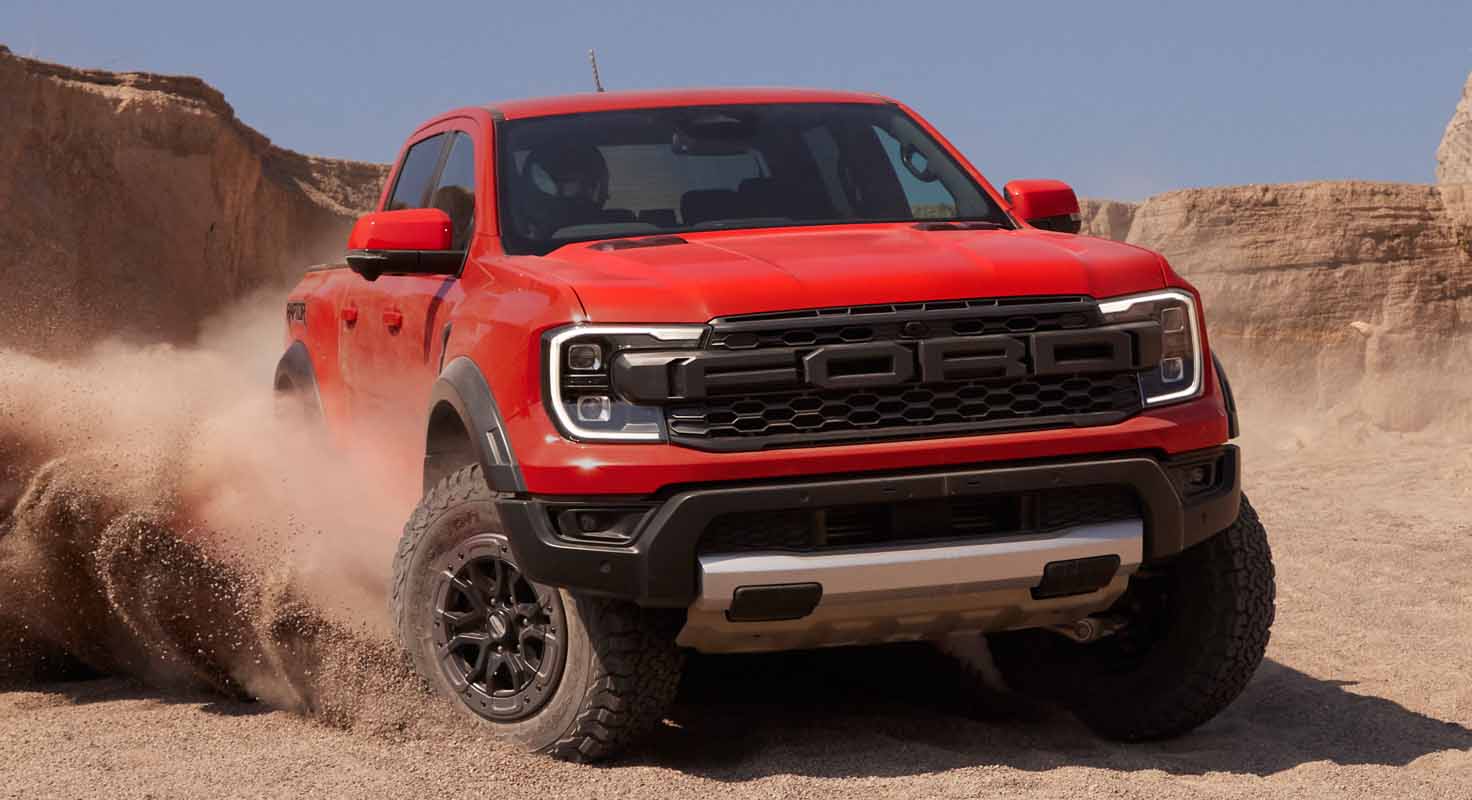
Inside, the theme continues to emphasize the off-road performance and high-energy nature of the exterior. The cabin features all-new, jet fighter-inspired sports seats – both in the front and rear – that are not only more comfortable but more supportive during high-speed cornering.
The Code Orange accents on the instrument panel, trim and seats are enhanced by Raptor’s ambient lighting, which bathes the interior in an amber glow. A premium grade leather sports steering wheel with thumb swells, on-centre marking and cast magnesium paddle shifters completes the picture.
Ranger Raptor boasts a fully digital cabin, with high resolution 12.4-inch digital cluster and 12-inch centre touchscreen boasting Ford’s new-generation SYNC® 4Aiii connectivity and entertainment system, which offers both Apple and Android wireless smartphone connectivity. A Bang & Olufsen®iv sound system provides the soundtrack to your next adventure.
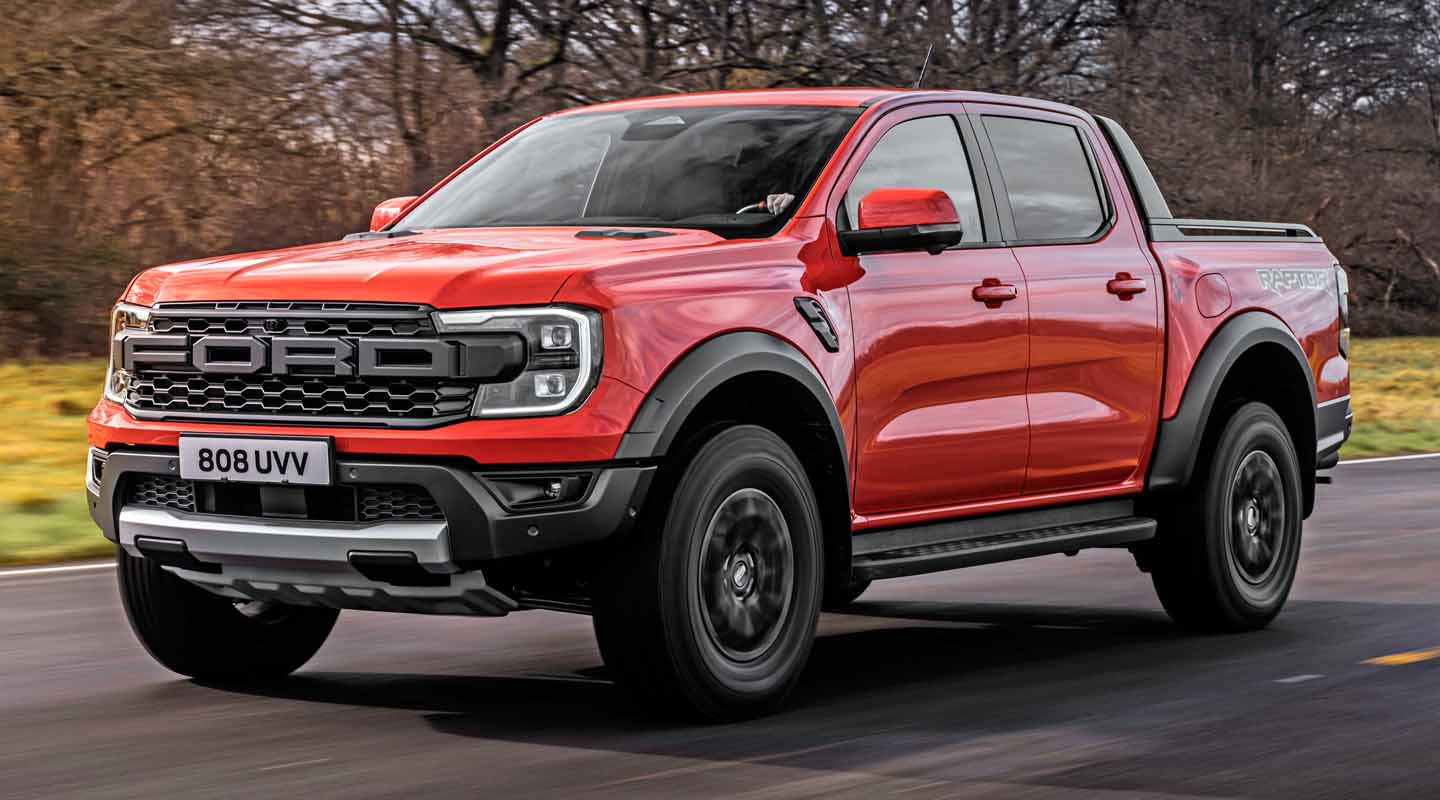
Part of The Ford Performance Family
The roots of the Raptor name lie in North America, where Ford engineers used it on high-performance pickup trucks. It started with the first-generation F-150 SVT Raptor in 2010, which was optimized for high-speed off-road performance. Ford focused on detailed engineering upgrades around suspension, all-terrain tyres and four-wheel drive.
In 2018 a new member of the Ford Performance family was launched. The Ford Ranger Raptor spread the Ford Performance brand to a whole new audience of hardcore truck owners around the world, introducing the Raptor name into dozens of new markets.
The next-gen Ranger Raptor continues this legacy, with a purpose-built vehicle that balances daily duties with the sort of performance never seen in a mid-size pickup.
“We knew that customers would expect improved performance with the next-gen Ranger Raptor, but I’m not sure they’re really expecting the enormous leap we’ve made. It’s a seriously fun car to drive and I think the raw performance is going to blow them away,” said Burn.
